Ryan Schneider's Blog, page 21
January 16, 2013
America's Next Author Runner-Up Jen Barton (@FionaThornBook)

This Author Spotlight is slightly different from our usual weekly fare in that it features writer Jen Barton in a follow-up interview in order to discuss her award-winning original short story "Movin' On Up."
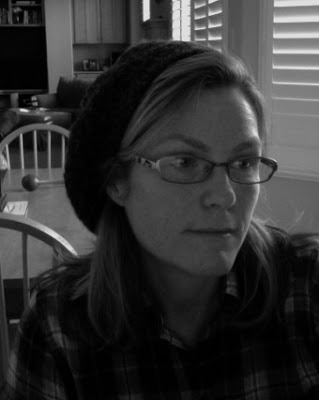
"Movin' On Up" was recently declared as a finalist (top 3!) in the America's Next Author contest.
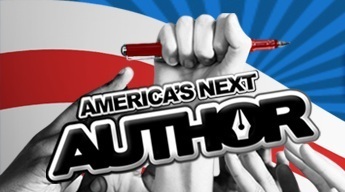
Here is the trailer for the story:
Jen is also the author of Fiona Thorn and the Carapacem Spell.

Jen Barton was born in Williamsport, Pennsylvania in 1971 and spent much of her life on the East Coast. In 2008, at age 36, she and her family moved to California. With two cars, she and her husband moved two dogs, two guinea pigs, a cornsnake and their 10-year old daughter across the country. She counts the five-day road trip, including a near escape by both dogs on Day 3, as one of her best experiences to date.
In 2009, with a Bachelor of Arts in English and Philosophy from Millersville University, Barton realized her childhood dream to become a writer. One van full of bored kids, one long day of travel, and Fiona Thorn was born. She’s been writing ever since.
When not taxiing her teenage daughter hither and yon, Barton loves reading (especially fantasy by George R. R. Martin), cooking (anything with pasta is a hit), and writing (magical worlds with obstinate teen girls is always a favorite).
1. Please tell us about ANA, the contest, and your story.
More than 500 authors submitted original short stories, and over a period of 8 weeks people all over the internet had the opportunity to vote for their favorites. "Movin' On Up" made it to the top 3. After that, the judges decided the winner. They chose Kate Baggott, a great Canadian author living in Germany now, and announced Jill Amber Menard and me as the runners up. Jill and I both won $500, and Kate won $5000.
2. What is your story "Movin' On Up" about?
"Movin' On Up" is about an old woman in a nursing home. Her body is going, but her mind is still there, mostly. She wants something in the dresser across the room, but of course, she can't get it for herself or even ask anyone to get it for her. The story is from her POV. Little things that happen in the home trigger memories from her past. We follow her through those, which help with background and context for her life.
3. How did the story come about? What is its origin?
For many years I've been volunteering at a local convalescent home. I read to the residents who are bedridden or unresponsive, or sometimes both. It's been incredible to hear their stories, sometimes first hand, sometimes from visiting family members or the staff. Being there reminds me that everyone has a story, that everyone has a lifetime of memories inside. I've wanted to do something from that perspective for awhile. It didn't take long to start imagining how things could go bad in a place where you can't move or communicate.
4. How many drafts did the story undergo prior to its submission to America's Next Author?
I wrote the story fairly quickly, due to the deadline of the contest. I'm guessing I worked on it for a week, probably changing it around 3 or 4 times. It was an unusually fast project to write. Of course I would fix a few things, looking back, but overall I'm very proud of it.
5. Is the story available for readers?
Yes! The story can be read in this post (scroll down to read the story), online, or is available for download 100% free via the America's Next Author website through ebook Mall: http://www.ebookmall.com/author/jen-barton
Wonderful. Thank you, Jen, for sharing your story. And congratulations on doing so well in the contest.
Be sure to read or download "Movin' On Up" if you have not yet done so. It is a touching story, one which beautifully and tragically illustrates the reality of aging and the gap between how one appears on the outside and how one feels inside.
And here, in it entirety, is Jen's award-winning and very moving story "Movin' On Up". Enjoy.
Movin' On UpJen Barton
Stay young, or at least have the good sense to die quickly. Because the end, I’m afraid, is not what you think.
I flash my eyes, hoping to catch the nurse’s attention. If I can make her see me, really see me, she could get it. She’d do it, too. She’s one of the good ones. Susie, I think. No, it’s Sandy, like the beach. That’s what she always says. It’s in the bottom drawer of that cheap particleboard dresser. Comfort. Solace. Salvation. Only a few steps away and it might as well be on the other side of the world.
I blink furiously, but it’s no use. She’s too busy putting my right arm through the sweatshirt, which I hate because all the twisting and pulling makes me feel like a damned trussed bird. Or is it the left one she’s got? Lefty loosey, righty tighty...how did that go? Hell, I don’t know. It’s all the same anymore. Two arms that don’t work when you tell them to. No more use than a pair of old rolling pins tied to my sides. Less! At least the rolling pins could still make a pie.
“There now, Mrs. Mercer, you’re all dressed for the day,” Sandy says, fluffing the pillows behind me. “This shirt must be new. Such a pretty shade of blue too, brings out your eyes.”
This is a lie. The last time I saw my eyes they’d sunken so far into the wrinkles I couldn’t even tell what color they were. But it’s nice of her to say.
She presses a button and the head of my bed begins to rise. “And the bears on the front are adorable. A gift from your family?”
Yes, such as it is. Though how a closet full of Chanel made anyone think I’d want teddy bears embroidered on my chest I’ll never know. But that’s old age for you. Not only do complete strangers now clean my backside, but I’ve become a depository for every craft any relative can make. One slip on an icy step, a few confused days, and you wind up here, in a kennel full of old people, surrounded by latch hook and patchwork. I spend my time staring at mint green cinder block walls, sleeping in an adjustable bed next to a lady with a goiter the size of a small watermelon who blares Judge Judy all day and bathes in Jean’Nate.
I smile and slowly nod.
“Is there anything else I can do for you before I go?” Sandy asks, tucking the dead twigs that used to be my legs under the thin covers. Her touch is sure and firm, with an efficiency that makes me think she’s been at this awhile.
Concentrate, I think, taking a breath. You can do it. Make the damn words come out.
Sandy heads toward the hall, smiling at Gladys, my roommate.
“Annk..aaannnkk,” is all my mutinous mouth can manage. But she’s coming back. Did I say it? Maybe she’ll find it. I know it’s in the dresser. Look! Please! Look at my eyes, I’m looking right at it!
“You’re welcome, dear,” she says, patting my arm. She heads toward the dresser and for a second I think she’s with me, that she’s actually seen past the skin and bones lying in the bed and found me, Anne.
But no. She keeps going, passing the dresser without so much as a glance, and doesn’t stop until she gets to the tv. She presses the volume button and shakes her head like an indulgent mother. “Let me turn this up a bit, I know how you and Gladys love your Judge Judy.”
Jesus, I think as she leaves, I need a drink. Some Stoli to throw in that dixie cup of cranberry. I roll my head to the side and glance at Gladys. Her eyes are closed, her goiter heaving with her labored breath. I wonder if she remembers vodka, if she remembers good fruit and chocolate and salt. Does she think about the crisp of a spring pea or miss the way a fresh loaf of focaccia could soak up a beautiful, earthy olive oil? I wonder if she’s in there somewhere, like me, locked inside a dead shell, or if she’s one of the lucky ones who’s already gone, like Walter across the hall, content to make macaroni necklaces in a room full of drooling wheelchair zombies.
Dammit! How did this happen?
A wave of anger rolls through me, the flush warm on my tissued cheeks, and I swing one of my rolling pins to the side. It knocks into the table beside the bed. The whole thing wobbles, tipping the juice over. My rage dissipates, gone before I can even enjoy it. I smile though, surprised at my own strength. I really did that.
The juice has made a pink puddle on the serviceable linoleum floor that I share with Gladys and her goiter. I’m exhausted from the outburst, from the constant drone of Judge Judy and her endless stream of moronic litigants, but for the first time in months I feel good. Alive. My eyes close and I imagine the spill spreading. It’s a pretty pink; the color of that perfume Molly used to have.
I am in her room, a sea of pinks and purples. She’s struggling with the perfume, her fingers small, barely big enough to wrap around the glass bottle, and it’s hard for her to spray.
“Not too much,” I say, smiling.
She is determined and beautiful, her blonde hair hanging in braided pigtails. A tall rainbow feather is tied to the back of her head with a thick strip of red yarn. Complete warrior princess. Fearless. Even then. The yarn has begun to unravel though, and the tiny threads are tickling her face. She scrunches her little nose, trying to ignore it.
“Hold the bottle away from you a little,” I say, “or it’ll be too strong.” I reach to help, but she pulls away.
“Mom,” she says, “I do it all the time.” I see the white lettering between her fingers: Loves Baby Soft. A present from her uncle last Christmas. Now she can’t get enough of it. A spritz before preschool. A spritz before lunch. A spritz after bath and another before bed.
“Okay,” I laugh. “Is everything set up?”
“I have pretzels, and some sammies in the fridge.” She sprays herself in the face with the perfume and winces. She steals a glance at me, waiting for the I told you so. When I say nothing she sticks her tongue out and wipes it with her sparkly sleeve. “And pickles. Lots of pickles.”
“Any veggies?”
Her shoulders slump. “No one wants that but you. Papa even hates carrots. He told me. Can’t we skip it?”
She’s right. No one ever wants vegetables but me, and certainly not for a birthday picnic on the living room floor. “What blanket did you use?”
“The big one I always use for my forts. The white one with the checks.”
I wake to the smell of shit. The strange thing is, it’s not mine. At least I don’t think it’s me. Or Gladys. It’s not even human, if my sense of smell can still be trusted. It’s the pungent, sharp smell of dog poo. And someone has just stepped in it.
I roll my head to the right, excited by the new development in my cage of routine, and see the culprit. Our room is dim, the faded curtains closed for evening, but the door is open, of course, privacy being the thing you lose right after bladder control, and in the glaring brightness of the fluorescent hall light I see the fat male nurse who works nights, Eugene, is in the hallway scraping the bottom of his shoe. And beside him is a dog.
“Therapy dog,” Gladys says, looking at me. Her goiter wobbles with her words. She’s a good roommate, but I try not to get too attached. The turnover rate around here is pretty high.
I smile and nod.
Eugene hobbles on one foot, loses his balance and falls to the floor with a muffled thud. The dog, a collie I think, barks. Eugene is now sprawled on the floor, tangled in the dog’s leash. It couldn’t happen to a better guy. Unlike Sandy, Eugene isn’t one of the good ones.
I laugh, or gurgle really. It’s about as close as I can get to a laugh these days. But for the moment, it’s alright. Around here this counts as real entertainment. Not like the rubbish they pass off in The Sunflower Room. As if I’m supposed to be interested in bean bag toss or an awful elementary school choir. I’m a grown woman with eight decades under my belt. Yes, I am living inside a dying husk. And yes, after the last stroke I can hardly even mumble. My skin is so thin and transparent my veins have replaced my breasts as my most prominent feature.
I’ve been to China and Thailand, to Paris and Milan. I ran a successful restaurant for over thirty years, and when I was nineteen spent a scandalous summer in San Sebastian with a beautiful Spaniard who made my simple name sound like a dirty word. I don’t want to play putt putt golf from my wheelchair into a dingy green beach bucket. A girl has to have standards.
I want to dance and play bridge and smoke cigarettes! Oh, how I loved to smoke. I could blow rings that would make you weak in the knees.
I watch Eugene the fat nurse stomp off, dragging the dog along on the leash. We had a dog once. When Molly was young. Lolly we called him, because that’s how Molly said her name then.
She is standing over our bed. It’s the middle of the night, but even in the dark I can see how swollen her eyes are.
“It’s Lolly,” she says through tears. She wipes her nose with the back of her sleeve, like when she was little. “Come on.”
He has lost control of his bladder in the night and wet all over her bed. He is dying, in earnest, his cancer having finally gotten the better of him. Chris carries him downstairs, wraps him in the white checked blanket and lays him on the couch.
“Lol..,” Molly chokes. She lays beside him, holding his head in her lap, waiting. His breath is shallow, weak. He is struggling. I rub his smooth head, misshapen from the bulging tumor in his sinus cavity, and think what a good dog he’s been these thirteen years. How he put up with Molly dressing him in doll clothes when she was young, how he suffered though obedience school with her when anyone could see he hated it, how he curled up by my head when he’d found me crying on the bathroom floor the day my father died.
Chris had wanted to bury the blanket with him, but I’d insisted we keep it. Funny how a thing like that, an ordinary blanket, could become so important.
“Stop it!” Gladys cries, waking me. “Get away! I don’t like that!” Her voice is tight and thin, breaking. She sounds frightened.
Thunder crashes loudly outside. It’s dark and rain is pelting the window by my bed, like it’s blowing sideways. It sounds like one hell of a storm.
I open my eyes and find Eugene standing over Gladys on the far side of her bed. Both his hands are on her goiter.
“Oh, Mommy,” he says, rubbing lotion into her throat, “don’t make such a fuss.”
I hate the way he says that. How he calls us all Mommy, like it’s some kind of endearment.
He smooths the extra lotion into his thick hands then wipes them on the front of his blue scrubs. As he walks around Gladys’ bed, his eyes on me, I see the bulge in his pants. I look at Gladys. Her face is stricken, eyes wide and popping, like a kid’s toy that’s been squeezed too hard.
“Help! Someone! Help!” she cries, the only good voice between us. She looks toward the bright hall, pressing her call button over and over. But I know it’s no use. It’ll be at least ten minutes before anyone comes. Eugene knows it too.
He smiles as he approaches, his piggy eyes locked on me. “Mommy, what’s wrong? Why so upset already?” He pulls a new pair of gloves from the box on my bedside table. I flinch as he snaps them into place.
He lays his hands on me and I stiffen. There’s nothing I can do. There never is. He rolls me onto my side, hard. The sheets twist, catching my thin skin, and I know I’ll have another bruise in the morning. I feel him checking my diaper. His gloved hand brushes my backside, lingers a little too long. When he sees it’s dry he drops me. I roll onto my back, too fast for a broken old woman, and am dizzy for a second.
“Now,” he says, leaning over me, “was that so bad?”
I’m shaking despite all my efforts to stop. Somehow I know it’s part of it for him. I look away, hoping he’ll just leave. I see Gladys watching us, her finger still frantically pressing her call button. She really is a good roommate.
Lightning flashes, lighting up the curtains from behind like a thousand headlights coming right for me. It’s been a long time since I’ve been frightened by a storm, but this one is getting pretty bad.
Eugene squats down beside my bed, his face level with mine . I feel him there, the warmth from his body close and uncomfortable. His breath is hot on my neck and I want to be anywhere but here, anywhere other than trapped in this body, in this place, in this moment.
When he licks my ear I scream, a guttural rasping sound that’s worthless. I flail, fighting with all I’ve got, rage and desperation taking over. The adrenaline has made me stronger than I thought possible, and I see that one of my rolling pins has bloodied his nose.
Now it’s Eugene who is calling for help. He backs away, holding his fat, broken face. His voice is angry and unsure, so different than the smarmy one he uses with us. I have enough time to see the shocked smile on Gladys’ face, and then they are descending like a flock of vultures, holding me down, my arms pressed to my sides, my shoulders held to the bed. I feel the sting of the needle as lightning flashes outside and everything goes fuzzy, heavy.
The storm is blowing all around us, shaking leaves from the few trees in the small yard behind Landis Hall. It’s May 9, 1951. A Wednesday. And Chris and I are soaked.
“See?” he says, laying beside me, “it’s not so scary.” He is propped up on one elbow, watching me. I am hiding, face down in the blanket. It’s new, an early graduation present from my grandmother, and I feel guilty. I should be taking better care of it than this. The checked white pattern will never survive all this mud.
I hate storms. And this one is raging. The sky is black, despite it being four in the afternoon, with thunder so close at times it feels like it’s shaking me out of my skin. But here we are, right in the thick of it.
“I don’t know how I let you talk me into this!” I scream, my voice muffled by the blanket and the storm. I am shaking, adrenaline pumping through my frightened body, but am starting to realize he’s right. It is thrilling, like being at the top of a roller coaster, waiting for the car to plunge over the top. I love that he made me come out here.
“What are you guys doing?” Julie, my roommate, shouts from the doorway of the dorm. “It’s raining!”
“We know,” Chris says, waving his hand at her. “Are you cold?” he asks me, rubbing the goosebumps on my bare arms. He takes his jacket off and lays it over my shoulders. It’s warm and smells like him; familiar, safe.
“Was it the shivering that gave it away? Because I always do that when I’m about to be struck by lightning.”
He laughs and it soothes me, like the first sip of coffee on a cold morning. I peek over and see how wet he is, how his blonde hair looks dark because of the rain, how his t-shirt clings to his strong chest and arms. He’s smiling and shaking his head at me.
“We can go in if you want,” he says, laughing.
“No! I’m doing this,” I say, defiantly. I roll over and point at him. “And when I die it’ll be your fault. You can explain it to my mother.”
“I think I’ll risk it,” he says. He grabs his side of the blanket and crawls on top of me, his knees pressing divots into the blanket below. He is serious all of a sudden, thoughtful and determined. He looks as if he’s standing on the edge of a cliff. My stomach begins to twist. I glance at the door, wondering if Julie is still standing there, but it’s just the two of us. I look back at Chris and caution myself, knowing I could be reading this all wrong.
The rain is falling around him, shining in the flood lights of the dorm across the street, and everything else has gone. No sound, no cold, no fear. Just us. Under the blanket I cross my fingers, on both hands.
He leans forward, pressing my shoulders into the soft ground, and kisses me. He is with me, in this place of ours, I know it now.
“Annie,” he whispers, “will you marry me?”
The wind howls and the leaves blowing in the trees sound like distant applause.
“Yes, dummy.”
For once I have read it just right.
“We’re not going to have any trouble,” she says, “I guarantee it.”
It’s quiet except for feet shuffling around my bed, the squeak of rubber soles offensive as I wake. Gladys must’ve dropped her remote. No Judge Judy yet. The room is bright, even to my closed eyes, and there is commotion, as if a crowd has gathered. I am barely awake and already I’m on display. I snicker to myself. There was a time when I could command a room, when I’d wanted that kind of attention. But that was so long ago. Now I am just exhausted.
“I mean it,” she says confidently. “Go on. We’ll be fine.”
I hear the crowd go, shuffling on out. Well we're movin’ on up, my mind sings, to the east side. To a dee-luxe apartment in the skyyyy. I smile. I haven’t thought of that show in decades. I always liked it.
“Mrs. Mercer?”
Her voice is familiar and I know I like her. Round face, short bob, kind brown eyes. Susie, Sally, something like that. I open my eyes, shaking the last of the cobwebs loose. Sandy, like the beach. That’s it.
She is smiling, her hands on her full hips. “That was some excitement last night.” She reaches for my hand. “Are you all right?”
Fish don't fry in the kitchen, Beans don't burn on the grill. Took a whole lotta ta-ryyin', Just to get up that hill.
I nod. I am very tired, like the day after I ran that half marathon with Molly, but I feel okay.
“Good.” She squeezes my hand. “I’m afraid I have some bad news.” She sighs. “Gladys passed away last night. Stroke.”
I look over, and despite what Sandy has said, I expect to see Gladys there, her goiter bobbing below her chin as she searches the covers for her remote. But she is gone. The bed is bare, stripped naked to the thin mattress. One of the support bars is bent, the hinge by the head of the bed broken. Stroke my ass. Eugene’s foolishness has killed her.
“I’m so sorry,” Sandy says. “I know you were friends.” She squeezes my hand and begins to bustle about, folding my clean laundry and tidying my dresser.
No rest for the weary, I think, watching her work. I feel the warmth of my tears leaking over my wrinkled face and I smile. I’ll miss Gladys, despite her love of inane television. But I am happy for her. And a little jealous. She’s finally free.
“It’s nearly noon,” Sandy says, opening the curtains. It’s a bright, clear day. Last night’s storm has blown out the last of the haze. “Molly will be here in a few hours.”
My beautiful Molly. Seeing her has become bittersweet. The guilt is hard to bear.
“Aaaan..ket,” I say forcefully, nodding toward the dresser. If Sandy comes through now I can be finished with the nonsense. My arm is dead, too tired from last night’s brawl to point, but all of my being is focused on the bottom drawer of that ugly dresser. I want my blanket, and everything it holds.
“Honey, what is it?” She comes close, and for the first time in weeks I think it may work. She is looking right at me.
“ket...aaanket.” I nod furiously toward the dresser, like one of those stupid bobble heads Chris’ brother used to put on his dashboard.
“You want something?” she asks, walking toward the dresser. She points to it, like we’re playing the kids’ game Hot/Cold. “Something in here?”
I nod. Yes! Yes! You’re getting warm, Sandy, very warm.
“Something in the dresser?”
“Eeeesss!” I stammer.
“This drawer?” she says, opening the top one.
Cold. Cold. Bottom drawer, Sandy! I shake my head.
She closes the top drawer. “This one?” she asks, holding the handle on the second drawer.
I shake my head. No, but you’re getting warmer!
I feel my heart thumping through my little bird chest. This just might work!
“Well,” she says, laughing, “there’s only one left. It must be something in the bottom dresser.”
I nod. I nod. I nod until I think my head will snap off backwards.
Sandy bends over, and I can hear the bottom drawer of the cheap particleboard dresser slide open. Weeks of pointless gestures and mumbling, weeks of trying to catch someone’s attention, and finally she’s realized. Hallelujah!
“Mrs. Mercer,” she says, standing up, her hands on her hips, “honey there’s nothing in there. It’s completely empty.”
The sun is warm and pleasant on my skin, the sensation at odds with my mood. I am distraught, so empty I feel hollow, like you could drop a penny inside and it would never stop falling. All I’d been counting on, all I’d needed to make it through was in that drawer. And now it’s gone. Probably stolen. Things disappear around here all the time. But who the hell would steal an old woman’s blanket?
“Mom!” Molly says, walking through the doorway. She is in jeans and a t-shirt, carrying a large shopping bag at her side. She is beaming, and despite my mood, I smile. Even now, in her fifties, she’s gorgeous. People take better care now though, I suppose. Exercise and healthy eating. We never worried much about that. I press the button on my bed, slowly sitting up, and try to enjoy this bit of sunshine.
“Are you alright?” She drags a folding chair to my bedside and sits. The paper bag she’s carrying rustles pleasantly as she puts it down. It reminds me how much I loved shopping, going out to lunch, having our girl’s days.
She takes my hand. She is warm and vibrant, her touch soft, but her eyes are full of concern. “They said Gladys passed, and that there was some kind of episode last night.”
Something like that. I have no way to explain. I’m not sure I’d want to even if I could. There are just some things you cannot share with your children, no matter how old they’ve gotten.
I squeeze her hand and smile, reassuring her I’m alright. But I already know she won’t let this go. I can feel it coming.
“We’re getting you out of here,” she says, looking around. Her face twists in disgust, like she smells something bad.
I shake my head, not wanting to go through it again.
“Mom, I mean it.” She leans forward, resting her elbows on my bed. She looks up at me and she’s twelve, lying on the shag carpet begging to stay up another fifteen minutes.
Not on a school night, Sweetie.
“I’m serious. Selling the house would be enough.” She sits up and shakes her head. “Jeff’s expecting a promotion and the kids can work themselves through school.” She stands up and starts pacing. “Grace doesn’t graduate until next year. She can work and save up. You did! It’ll be good for her.”
When she steps from in front of Gladys’ bed I am shocked all over again that it’s empty.
I shake my head, slowly, defiantly. I will not have my granddaughter’s college money be spent on me.
“Dammit, Mom! This place is a...well it’s not the right place for you.”
She’s right. It’s not really the right place for anyone. But it’s all I can afford. Chris’ chemo and radiation and all of the holistic therapies and treatments took every bit we’d saved. And then some. Eighteen years is a long time to be alone, I’ve discovered, without the other half of your heart. And I am weary. But I will not let her do this.
I shake my head, slowly, defiantly.
She smiles, the mischievous one that reminds me so much of Chris, and sits back down. “You know, I could just do it anyway. You’re not the boss of me anymore.”
I squeeze her hand and we laugh. It’s over for now. But I know Molly like the back of my own wrinkled, palsied hand. It’s only a matter of time before she does this on her own.
“Oh!” she says, looking down at her side, “I almost forgot! I brought you something!”
I brace myself for the latest bejeweled glasses case or tissue box. A friend of my great niece has discovered bedazzling. I could join the Rockettes if I wanted.
She reaches into the large paper bag and pulls out the white checked blanket. “I noticed how dirty it was the last time I was here,” she says. “So I washed it.”
My eyes are running again as she gently spreads it on top of me. It smells just right. Like a fresh load of laundry. Like home. She tucks me in, cozy and warm and I feel wrapped in softness, cocooned in love, like an indian baby in a papoose. I am overwhelmed.
She smiles, knowing she’s made me happy. “And I found these,” she says, flopping a small sandwich baggie of little blue pills on the table by my cranberry juice. “Not sure if you need them, but they were inside the blanket.” She gives me the mom face. “They almost went through the wash. Show them to Sandy. She’ll know what they are.”
I know what they are. I hold her hand in mine, and nod, thanking her. This means everything.
We visit for a while. I listen as she tells me about what schools Grace is considering for college and why Charlie (or is it Chandler?) switched from tuba to trumpet in marching band, about the race she’s training for, and Jeff’s obsession with making homemade wine. I absorb it all. I am so proud of her, of her family and who she’s become.
Finally she looks at her watch and sighs. “I have to go. It’s an appointment all the way across town. I tried to change it, but you know how it goes. Couldn’t get a Monday opening for another two months.”
I do know how it goes. How eighty-one years goes by in the blink of an eye, how love and gratitude can make your heart swell so it’s hard to breathe, and how some things are worse than letting go.
She hugs me good bye and I hold her, my beautiful warrior princess. I close my eyes and she’s four, wearing her rainbow feather headdress, passing out pickles to her grandparents.
I smile as she leaves, my face wet with tears, and reach for the baggie.
Well we're movin’ on uuup, my mind whispers, to a dee-luxe apartment in the skyyyy.
Published on January 16, 2013 07:13
January 11, 2013
Update on My Forthcoming Novel
Hi, gang.
I've been getting a lot of questions about when the new book will be ready.
So here's a quick update.
The book is progressing exceedingly well. I'm editing/polishing the final chapter.
Then to Beta readers.
Cover art is in the works. I don't want to give anything away, but the artist I'm working with is ridiculously talented.
For the folks just joining us, I can tell you that the novel is titled EYE CANDY. It takes place in the futuristic Los Angeles of 2047. You will be able to find it on the virtual shelf under Science Fiction. It is also a love story. I feel it will be accessible by male and female readers alike. Please note that it does contain some adult content, so it is definitely not YA (Young Adult).
For anyone thinking, "Oh, I don't like science fiction!", I would suggest to you that the beauty of the SF genre is its ability to take us to new places where serious matters can be discussed and explored.
We can explore themes such as humanity and technology and how the two intertwine.
We can discuss philosophy and the nature of our own existence while discovering a vision of a possible future, one in which air pollution is a thing of the past, cheap renewable energy is commonplace, and robotics is a daily reality as ubiquitous as mobile phones are to us today.
Against such a backdrop, Los Angeles in 2047, people still go to work and to the gym and to the sports bar to watch Monday Night Football. They still take the kids to school and pick them up in the afternoon and have to figure out what's for dinner. And they still fall in love and dream of living happily ever after.
I'm very excited to see the final product.
Stay tuned.
We now return you to your regularly-scheduled, non-italicized programming.
Published on January 11, 2013 13:47
January 8, 2013
10 Questions with Writer's Writer Marcia Riefer Johnston (@MarciaRJohnston)
 Cover art by Brian Hull. Cover design by Vinnie Kinsella.
Cover art by Brian Hull. Cover design by Vinnie Kinsella.Holiday mayhem has subsided. A new year has begun. (Though HOW it came to be 2013 is beyond me.) And it's time to get back to work. Back to business. The business of writing. What better way to begin the new year than with an Author Spotlight illuminating a book on writing?
I therefore give you Word Up! by literary luminary and writer's writer Marcia Riefer Johnston.
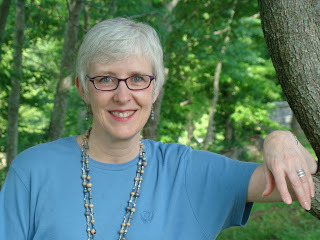 Photo by Wendy Hood.
Photo by Wendy Hood.When Marcia was 12, American Girl magazine printed her eight-paragraph story, “The Key,” and paid her $15. She has been writing ever since.
She studied under Raymond Carver and Tobias Wolff in the Syracuse University creative-writing program. She taught technical writing in the Engineering School at Cornell University. She has done writing of all kinds for organizations of all kinds, from the Fortune 500 to the just plain fortunate.
Marcia has written for the scholarly journal Shakespeare Quarterly, the professional journal Technical Communication, and the weekly newspaper Syracuse New Times. She used to write letters by the boxful. She has contributed posts to her daughter’s Peace Corps blog, texts to her son’s Droid, and answers to her husband’s crossword puzzles. Her words have landed on billboards, blackboards, birthday cakes, boxes of eggs, and the back of her book. She lives in Portland, Oregon.
To share her love of writing, she has collected some one-of-a-kind essays into a book:
Word Up! How to Write Powerful Sentences and Paragraphs (And Everything You Build from Them).
1. How did you get into writing?
When I was maybe nine years old, my best friend, Shannon Wood, gave me a blank book. I had always loved reading books. Suddenly, I was inspired to write one. I sat down to do just that, only to discover that I had nothing to say. But I clung to the notion of myself as a writer. When you believe long enough that you can do something that you can’t do, lo and behold, you discover that you can.
2. What do you like best (or least) about writing?
What I like best: The pleasure of getting it right—finding the perfect word, crafting the ring and rhythm of a sentence, discovering the structure that a given piece needs, nailing an ending. And then I love hearing from readers when they experience those pleasures for themselves. For example, fellow tech writer and self-professed grammar geek, Jennifer DeAngelo, writes, “I find myself forcing others to listen while I read ‘this great part’ out loud every few minutes. My dogs will soon be English experts!” That’s what drives me to write—getting to have, and then share, those moments of earned joy.
What I like least: The time required to get it right. Even the best writers have no shortcut to good writing.
3. What is your writing process? IE do you outline? Do you stick to a daily word or page count, write 7 days a week, etc?
The writing I do for myself fits around my technical-writing contracts. When I’m on a big job, I might not do any of my own writing for months. I have no word-count or page-count goals. Inevitably, something comes along that sparks the urge to write on an age-old topic (all topics on language usage are age-old) in a way that strikes me as unique and fun. Once that flame gets going, I’m a moth who can’t stay away.
Someone asked me recently how many revisions a typical essay goes through. She reported that her husband revises a typical piece five times. Five! I didn’t know what to say. The concept of countable passes brought me up short. I don’t revise in discrete iterations. Writing is editing and vice versa. Each essay evolves continuously, one change after another, over and over. One essay might take the better part of a day; another might take weeks.
When I’m working on an essay, I wake up each day with ideas for additions or deletions. I keep pads of paper everywhere—next to the bed, in the bathrooms, in the car, in the office, in the kitchen. In between bouts of writing, ideas come unbidden. A lot gets worked out for me while I sleep. I don’t mean that in a mystical way. Good writing requires many kinds (and many repetitions) of thinking, critiquing, weighing. It’s a rush unlike any other when your brain is processing processing processing, and the thing you didn’t even know you needed SURFACES. Aha! Quick, get me to a keyboard.
4. Who are some other writers you read and admire, regardless of whether they are commercially “successful?”
Hemingway was my first inspiration in terms of craft. My book, Word Up! includes my two favorite quotations from him, both classics. Here’s one:
If a writer … knows enough about what he is writing about he may omit things that he knows … The dignity of movement of an ice-berg is due to only one-eighth of it being above water. A writer who omits things because he does not know them only makes hollow places in his writing.Here’s the other:
The greatest difficulty, aside from knowing truly what you really felt, rather than what you were supposed to feel … was to put down what really happened in action; what the actual things were which produced the emotion that you experienced. The real thing, the sequence of motion and fact which made the emotion … would be as valid in a year or in ten years or, with luck and if you stated it purely enough, always.A writer could do a lot of fine work following nothing but those two principles.
I also admire Ray Carver and Toby Wolff. I had the privilege of studying with both of them in the creative writing Masters program at Syracuse University. What an opportunity! Ray and Toby made us, their lucky students, feel that our words mattered. Their affirmation meant as much as any lessons I learned from them. If anyone reading this hasn’t yet discovered Ray Carver’s short stories “A Small, Good Thing” and “Cathedral,” stop right now and go find them. And if you haven’t yet read Toby Wolff’s memoirs This Boy’s Life and Old School, do you ever have a treat waiting for you.
I also love Barbara Kingsolver, especially her essays. Her Small Wonder and Animal, Vegetable, Miracle take my breath away—in terms of both what she says and how she says it.
And Mary Karr … beware. Reading her is enough to put you off considering yourself skilled or entertaining. Her Liar’s Club tops my list of books to recommend.
5. Should the question mark in the above question be inside or outside the quotes?
It was a setup! Okay, I’ll bite. That question mark goes outside. If you were quoting a question, you’d put the quotation mark inside.
I wish that American usage (like British usage) treated commas and periods with similar logic. When you have a word in quotation marks, like “this,” who on earth decided that the comma belonged inside? If I put a word in italics, like this, how am I supposed to get the comma inside the italics? I mean! Ooooh, Ryan. Do. Not. Get. Me. Started.
6. What’s your stance on the Oxford Comma?
You are going for, blood aren’t, you Ryan? I, say why bother with that extra, comma in fact why, do writers care so much, about commas anyhow since, they just take, up space and readers, can figure out what we, mean right? Those sticklers who insist, that the Oxford, Comma creates clarity, while taking, up hardly any, space well they are, just a bunch, of curmudgeons! Writers should put, commas wherever they like or not just let their words flow as nature intended straight from the brain and let the natural rhythms emerge organically who needs commas when you get right down to it writers who need to lean on crutches like commas can’t hardly call themselves writers now can they and no in case you’re wondering no I am not serious I figure if you’ve read this far you surely have your own opinion on this question and have heard it discussed enough times to have yawned at any straight answer I might have given.
In case you’re still wondering, and if you haven’t come to terms with this question for yourself, and if you don’t have a style guide forced on you at work making the decision for you, then let me give you a straight answer after all and say yes, I cast my vote adamantly in favor of the Oxford comma (aka serial comma, aka Harvard comma, aka the comma before the last item in a series). I just used one in the previous sentence before the final if clause in the series. Did you notice? Probably not. That’s the beauty of these handy little curved marks of punctuation: they make reading easier. Why leave them out when they’re so darn useful?
I know, I know, newspaper columns, etc. Save that snippet of space if your style guide says you must.
I couldn’t put it better than Bryan Garner, whose big, fat Garner’s Modern American Usage, by the way, every writer needs. On page 676, he puts it like this: “Omitting the final comma may cause ambiguities, whereas including it never will.”
Hear, hear! Or is it Here, here? Now there’s a question for you, Ryan. Two can play at this Q&A game.
It's Hear, hear! As in, "Hear him! Hear him!" It's what proper English dudes say when they agree with what has been said and want to vocalize said agreement.
I knew this. Then I got scared and looked it up. But it is "Hear, hear!" Thank you for educating us, Marcia. See that, everyone? Free learnin' goin' on right here.
7. What is Word Up! about and how did it come to fruition?
Ah, back to a serious question. Actually, I love all of these questions. Bring them all on!
I’ve had a passion for the English language since I was deprived of it during my year as an exchange student in Austria in high school. I also credit my English teachers for teaching me writing skills that too few people get these days. Lots of people are hungry for better writing skills. And these skills are teachable. I realized that I had something of value to offer and could have a ball doing it.
For a longer answer to your question, see “Tribute to a teacher who put ‘Word Power’ in his students’ hands”: http://howtowriteeverything.com/blog/about-this-blog
8. What’s your current writing project?
As I type this, I’m still putting the final touches on Word Up! I’ve put my heart, mind, soul, stray socks, you know, everything I’ve got into this book—I’m not thinking about any other projects, not even what to have for dinner. Luckily, I’m married to an excellent cook who is almost as excited about this book as I am.
In my dreams, everyone who owns Strunk and White’s Elements of Style (and, if they’re lucky, Art Plotnik’s spunky Spunk & Bite) along with Lynn Truss’s Eats, Shoots & Leaves will add a copy of Word Up! to the same shelf.
In fact, I see this book sitting in the bathrooms of those homes. I see guests (even those who aren't writers) picking it up and, an hour later, emerging with a smile.
9. What books are you currently reading?
One book sitting (mostly neglected) on my nightstand is The Man Who Loved China by the prolific Simon Winchester. His writing gives me chills, and his subject matter always opens new worlds. I can’t wait to get back to it.
Another book I’m reading is Saul Bellow’s Henderson the Rain King. I look forward to discussing it with my husband; he’s been recommending it for years. I used to consider reading a purely private treat, but I’ve come to relish book conversations. You learn a lot about people from their responses to a book you’ve read in common, especially when their responses differ from your own.
In fact, every reader responds uniquely to every piece of writing. No two people ever read the same book—or the same anything. When the writer in you comes to this realization, you gulp.
10. Who or what inspires you to write?
Inspiration comes from anywhere language can be found: a hospital-hallway sign, a snippet of song, a Tweet, a book, a bakery cake, a billboard, the back of my brain.
Finally, is there anything you’d care to add?
Yes! I’d like to give you, dear reader, a sense of why I bothered to write yet another book on writing. The world already has too many writing books. If you piled up all the books on writing, you’d have a precarious, weird-looking stack reaching … way up there. But the world can’t have too many writing books of the kind I like to read, the kind I set out to write. This book doesn’t say the same old things in the same old ways. This book follows its own advice. Practices what it preaches. Shows what it tells. This book uses powerful writing to talk about powerful writing.
Powerful writing entertains, heals, motivates, sells, enlightens. It marks the biggest and smallest occasions of human existence. Powerful writing changes things—for a person, a classroom, a country, a planet.
People tell me that this book will appeal to advanced writers, and I hope that's true. I also believe that "advanced" can apply to high schoolers and college students. It's easy to underestimate what teenagers are capable of. This book could be used in the classroom—I’d love for teachers and students to discover it—but it’s not a textbook. It’s not exactly a style guide either, although it does get into grammar and style. I think of Word Up! as an inspiration guide. One reviewer (content strategist Rahel Bailie) says, “You rarely get this kind of knowledge in such an engaging way. Read the book like a collection of short stories.”
That’s the kind of experience I wish for you in reading Word Up!
Where can people find you online and buy your book?
Selected chapters are available, free, under the “Excerpts” tab on my website: “How To Write Everything” (http://howtowriteeverything.com)
The book, Word Up!, releases on April 27, 2013, National Tell a Story Day. Please come back to my website for details as that date approaches. If you made it all the way to the end of this interview, I wrote this book for you—and I can’t wait for you to get your hands on it. Mark your calendar … and any others you can get away with.
In the meantime, will you, dear reader who has hung in all the way to the last word, help me get the word out about Word Up? If you're on Twitter, Facebook, or Google+, please follow the Word Up! pages. (You know, click that cute little "Follow" button. Or "Add to circles." Or "Like.") These pages are all listed in one convenient place, here:
Word Up!on the Web - http://bit.ly/TPOd4C
Sign up, and then—most helpful of all—let your followers know about Word Up! too. Everybody needs a good word.
Thank you. —Marcia
Thank YOU, Marcia. In my opinion, the world can never have enough books on how to write well. Or even correctly. Or even semi-correctly. Language is a fluid medium and is ever-changing, constantly evolving. That's part of what makes it so much fun. But every pyramid has a solid foundation.
Let's talk again in April, Marcia, once Word Up! is officially available. And once again, thank you!
If you haven't yet done so, visit Marcia online at HowToWriteEverything.com and follow her on Twitter:@MarciaRJohnston (author)@WordUpTheBook (book)
Ernest Hemingway, Death in the Afternoon (New York: Scribner, 1932),153–154; First Scribner e-book edition 2002, http://books.google.com/books?id=Wn69.... Hemingway, Death in the Afternoon, 11–12.
Published on January 08, 2013 03:53
December 18, 2012
10 Questions with Nouveau Beat Writer Dave Louden (@davelostangeles)

This Author Spotlight features Belfast-born writer David Louden.
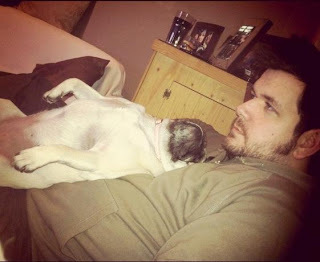
His debut novel Lost Angeles is a roman á clef-styled novel in the vein of 20th century beat authors. He also blogs under the name John Baxter and his film site Knifed in Venice showcases the best and worst (in equal measure) in horror, exploitation and independent cinema. When he’s not writing he’s battling fuel poverty and the weeping liver.
1. How did you get into writing?I sort of fell into it. For years I was involved in film programming as a creative outlet. I’d put on film screenings in Belfast and then all of a sudden it was gone and it was nice to have that time and head space back but eventually I got frustrated by the lack of release. I initially began working on a book about Exploitation cinema but a lot of the films were incredibly expensive and the research just went on and on and on. After a while I needed to just step back from it because I didn’t have the money or the laborious research personality but I didn’t want to stop writing so I started tinkering with fiction and immediately found that the style I liked was one that lent itself to a story I had to tell.
2. What do you like best (or least) about writing?I love telling stories. I think everyone at some point could and does do it. As children we make up narratives all the time only we call it play. At some point we’re told to grow up and stop f*cking around and that’s sad. It took me a long time to silence the devil inside so I could hear what I really wanted to do. I come from a very working class background and almost feel ashamed for wanting to do something “artsy fartsy” and I still suck at putting myself out there but I’m trying because I love telling stories and I’m bored with growing up.
3. What is your writing process? IE do you outline? Do you stick to a daily word or page count, write 7 days a week, etc?I’m not entirely sure of my process to be honest. About six years ago I spent a few months living in Los Angeles. I was staying in this $12 a night hostel and existing on breakfast burritos, Guinness and tequila and doing the odd bit of market research for money. It was an odd place to live because life and consequences and all that seemed to be other people’s issues. There’s something about not knowing what’s going on in the world that causes a liberating atmosphere. A few of us joked about having to put the LA hostel life down on paper – though we figured most of it wouldn’t be believable. A lot of stuff from then made it into the book, it pretty much rushed out of me so it was easy. I’m finding now I make a lot of notes when I’m putting things together but I think the subject will probably dictate the process…probably.
4. Who are some other writers you read and admire, regardless of whether they are commercially “successful?”I love Charles Bukowski, I think he’s an incredibly masculine writer and can sum up in three words what the rest of us waste pages on. That’s remarkably frustrating to read. I love John Fante, he’s amazing. I’m also a lover of William S. Burroughs, Donald Ray Pollock and Tony Parsons and Wendy Powers who was a big help with the book and I’d now call a friend. A few people I reluctantly let read Lost Angeles in the first-second draft stage remarked how it was similar to Parsons/Bukowski which is an amazing compliment. I just hope I’ve earned it, they were probably being generous with Bukowski but I’ll still take it.
5. Should the question mark in the above question be inside or outside the quotes?I’d instinctively go outside, I’m lucky to have someone who is a brilliant proof reader/copy editor/grammar Nazi so even if I’m wrong I end up right thanks to her.
6. What’s your stance on the Oxford Comma?I’ve nothing against the Oxford comma. It’s important in a lot of situations to eliminate ambiguity though ambiguity can be fun. I recently read about someone “declaring war” on the Oxford comma…I hope it kicks his ass.
7. What is your book Lost Angeles about and how did it come to fruition?It’s about a borderline alcoholic whose life has fallen apart and how he takes himself off to Los Angeles to kill himself. He spends a lot of the time making superficial connections in an attempt to feel something but his decisions are usually made under the influence and usually make matters worse. The style is somewhat episodic because I wanted it to feel like a series of confessions as he slips closer to the end. A lot of the chapters are based on real situations, real people and real problems. I knew a lot of people back then and we were all a little lost, we drank everyday and were lucky to come through that time unscathed(ish). It’s more fun than it sounds, or at least it was to live it.
8. What’s your current writing project?I see a lot of genre fiction around, everyone’s doing series’ of novels and then you’ve got me writing about drunks and promiscuity and dirtying up the place. I figured I’d try to write something that would belong in a genre and had the potential to become a series if I wanted to return to it (which I probably won’t) so I got to thinking about what I knew and then I remembered about my cousin. She had an interesting life, one day she just packed up from Belfast, moved to Chicago and started chasing down people who skipped bail so I’m working on a story that’s very loosely based on her when she came back to Belfast. I’m working on a few other things too but they haven’t reached the typer yet.
9. What book(s) are you currently reading?I’m reading a few things, On the Road because I wanted to read it again before I saw the film, The Devil All The Time because I read Knockemstiff and thought “this guy’s got style” and The Brotherhood of the Grape just because.
10. Who or what inspires your writing?I’ve a friend called Ben who tells the best stories, some of it’s beyond what I think I could convince people to accept but he’s always good for inspiration. Other than that it comes down to people you know or moments from your life because it’s cheaper than therapy. One of my friends told me about their crazy neighbour the other day. He’s going in the back pocket until I can figure out where best showcases him.
Finally, is there anything you’d care to add? Please also include where people can read your published stories, buy your book, etc.
Lost Angeles is available on Kindle and paperback via the following links:
Kindle UK: Lost Angeles
Kindle US: Lost Angeles
Paperback: Lost Angeles
Thank you, Dave, for sharing your novel. I agree that Knockemstiff was very good, and I'm also looking forward to seeing "The Road".
Let us know when your next book is ready!
Be sure to check out Lost Angeles. I used to live in Venice Beach so I can vouch for the lunacy in Dave's novel.
Published on December 18, 2012 14:34
December 13, 2012
10 Questions with Sci-Fi Thriller Writer C.L. Davies (@cldavieswriter)
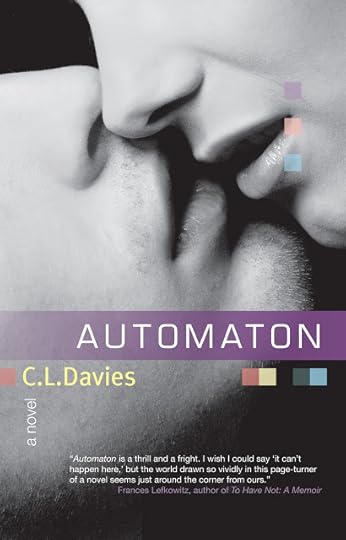
This Author Spotlight features British Science Fiction Thriller writer C.L. Davies.

Please tell us a bit about yourself, Cheryl.
Born in Ashford in 1978, I moved with my family to the Isle of Man when aged five. I obtained my degree in English Lit at the University of Hertfordshire, and returned to the Island and qualified as a teacher. I've taught in a local primary school for nine years.
I love the Manx countryside, and my little gorgeous garden. I'm a little obsessed with palm trees. As a demented but doting first-time mum, much of my time is spent caring for our new baby, who is beautiful and bonkers! She's the centre of my world and the reason for everything I do.
I work on my fourth book when she feeds and naps.
I live happily with our beautiful baby, the spirit of our much-missed cat, Pudge, and fiance Dean.
Dean, unbelievably, is yet to read the book ...
1. How did you get into writing?It was as simple as a promise to my mum – I love words; perhaps not the most sane thing I could admit to, but they’re constantly flitting through my head, and I often get obsessed with a given word or phrase, repeating it to myself throughout the day! Mad about words and good at English at school, my mum always used to say; ‘You must write a book before I die.’ She’s neither ill nor old, but I promised nevertheless. As I approached my 30’s, I knew I’d hope to soon start my family, and so I started writing before spare time became a luxury.
2. What do you like best (or least) about writing?I enjoy the escapism of writing, which is something I’ve never found elsewhere – I can literally lose track of the world around me, as the web spun of words enswathes me.
3. What is your writing process? IE do you outline? Do you stick to a daily word or page count, write 7 days a week, etc?When the Gods Of A Good Idea finally smile upon me, I type the outline of the story on my laptop. When I start the actual writing, and the storyline evolves, I add any extra elements to the plan. With baby here, I don’t stick to a programme, and write when I can. My favourite place to write is outside, in the fresh air, snuggled beneath a Slanket if it’s chilly. Bliss.
Tell me, Cheryl, what is a Slanket?
A Slanket is a blanket with sleeves - it's a trademark - I got one last Christmas. They're gorgeous and super snuggly!
Ah! It's what is known in the states as a Snuggie. It's basically an extra-long fleece bathrobe worn backwards. Genius.
4. Who are some other writers you read and admire, regardless of whether they are commercially “successful?”I’ve always enjoyed the powerful storytelling prowess of Stephen King, and the sublime fusion of horror and poetic eloquence in a good Dean Koontz. Lately, I have read and loved two fantasy thrillers by Chandler McGrew, with Crossroads now one of my all-time favourite reads. Remember earlier I mentioned getting obsessed with words or phrases? This stunning extract from Crossroads is one that still echoes in my mind: ‘As they rounded a long, sweeping curve the scimitar moon sliced through the ribbony overcast, spilling silvery shards of light earthward.’ Wow!
5. Should the question mark in the above question be inside or outside the quotes?Hmm … I think outside, because the question itself is outside the quote. Is that right? Whatever the answer, consistency is key.
6. What’s your stance on the Oxford Comma?I use it, so I guess my stance is a positive one.
7. What is your book Automaton about and how did it come to fruition?Automaton is about a society obsessed with entertainment, celebrity, and reality TV. It came about from my own continuing fixation with reality TV. Happily watching the participants of Big Brother as they slept, when I too should have been sleeping, got me thinking about how far an obsession might go. Automaton tells of an island where the programmable A.I. inhabitants exist only to entertain, alongside their fanatical gamers in the ‘real’ world. Lily and Dean live happily on the island, until resentful gamer Luke sickens of it and snaps. The devastating consequences ripple ever out, affecting human and non-human alike.
8. What’s your current writing project?I’m writing my 4th book, as yet title-less, over my baby-bundle’s head as she feeds and naps. I’m also doing a final edit of my 2ndbook Resonance, ahead of publication in 2013. Resonance, in brief, is a multi-strand story about super-rich Oscar, who pays for, upon his death, the storage of his soul. Reincarnated as Jake, his actions give rise to the age-old question; are we defined by nature or nurture? The story also tells of sinister elements in the ‘Forever Foundation’, of paranormal shared dreams, and its underground legacy of sadness and suffering.
9. What book(s) are you currently reading?I’m reading a paperback of Bard Constantine’s The Troubleshooter - a dark and amusing dystopian novel - and Erasure by A.T.H. Webber – a fascinating fiction about the influence of the Internet - on my kindle. Both books are thus far brilliant!
10. Who or what inspires your writing?Personally, I’m inspired now by my 10-month-old baby girl – everything I do is for her. I’m also inspired by my dream of being a full-time writer, with my kids running around in the garden, whilst I sit in some kind of organic red clay curvy den, and write for hours at a time.
Professionally, I’m inspired by Steven King, whose haunting stories stay in my mind for years – I can still hear the tramping of the dark man’s boot heels, in The Stand, and the rattling, shifting shells in Duma Key.
Finally, is there anything you’d care to add? Please also include where people can read your published stories, buy your book, etc.I’d like to add a thank you! I only want people to enjoy my stories, and it’s thanks to the generosity of book bloggers, reviewers and author interviews that newbies like me can hope to gain readers. Thank you thousands!
Automaton can be bought at all the usual and good online bookstores – www.barnes&noble.co.uk – www.waterstones.com etc and with free shipping at www.amazon.com/ and www.amazon.uk/ in both paperback and electronic versions. Resonance is due out late 2013.
Published on December 13, 2012 11:48
December 12, 2012
10 Questions with Fantasy & Sci-Fi Writer Lisa Mason (@lisaSmason)
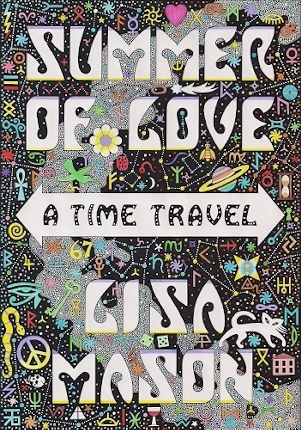
This Author Spotlight features accomplished Fantasy and Science Fiction Author and Philip K. Dick Award finalist Lisa Mason.

On Twitter, she's @lisaSmason
RS: How did you get into writing?LM: My mom bought me lots of great books when I was a kid. I loved reading and decided I wanted to be a writer. Stories and fantasies would pop into my head and I wrote my first book at age five. I’ve got it on my desk right now. It is 1¼ inches by 2 inches, hand-sewn, two chapters, lavishly illustrated by the author, and entitled, “Millie the Caterpillar.” Millie is despondent at being “a fat, green, hairy, little caterpillar.” Then spring comes, she breaks out of her cocoon, and “to her surprize, she found two beautiful red and black wings on her shoulders.” Happiness! The End. I’ve thought ever since surprise should be spelled with a z.So you could say I got bit by the writing bug early on, but my life has taken some twists and turns and writing hasn’t been a straight shot for me.RS: What do you like best (or least) about writing?LM: I love publishing something and having readers tell me they loved it, were entertained by it, moved by it, couldn’t put it down. I’ll shamelessly admit readers have told me Summer of Love is their all-time favorite book. Readers’ responses make all the blood, sweat, and tears worthwhile. What I hate most is getting stuck, but that’s a blog in and of itself.RS: What is your writing process? IE do you outline? Do you stick to a daily word or page count, write 7 days a week, etc?LM: Oh, I’d love to write 5000 words a day, but that seldom happens. The main thing is to accomplish something seven days a week, if only making notes or working out a plot point you’re not sure of. I usually get a holistic concept of a book or story, sketch the general thrust of it, and break it open with the first scene. Often, I’ll have the first scene and the last, the story goal I want to accomplish. (You know the joke that every book has a beginning, an ending, and a muddle.) I don’t like outlining but the process is so important for keeping your narrative on track. I’ll often micro-outline what I’m working on and the material immediately after. Once I get through that, the next plot twists often reveal themselves. Then I do the same process again, step by step.When a book gathers momentum and the world-building is set down, I’ll write every day for two weeks at a time, take a one-day break, then start again the next day.RS: Who are some other writers you read and admire, regardless of whether they are commercially “successful?”LM: You know, lately I’ve been picking up classic authors. I just read Raymond Chandler’s Lady in the Lake. Marlowe is the original chain-smoking, hard-drinking, lone-wolf, sardonic private eye and Chandler is such a master stylist. I’ve got Edith Wharton’s Ethan Frome and Joseph Conrad’s Tales of Unrest on my reading table. And I’ve been enjoying Rex Stout’s Nero Wolf mysteries from the 1940s. Urban fantasy employs the mystery trope, as does romantic suspense, both areas I’m writing within.RS: Should the question mark in the above question be inside or outside the quotes?LM: Outside, of course, because the question mark punctuates the entire sentence, whereas the quotes indicate the word is, in the author’s opinion, a relative or subjective term.RS: What’s your stance on the Oxford Comma?LM: I’m totally freaked out by the Oxford Comma. What the hell is the Oxford Comma?RS: What is your book Summer of Love about and how did it come to fruition?LM: Please take a look at my bio below. How does any of that happen? Obsession-compulsion. Hard work. Late nights. Giving up a lot of time-consuming activities like television.RS: What book(s) are you currently reading?LM: On my To-Read list are The Night Circus and A Discovery of Witches because I’m working on the next book in my urban fantasy, The Abracadabra Series. Research books for a science fiction series I’m launching next year.RS: Who or what inspires your writing?LM: Oh, Life! Personal experience. Love, anger, vengeance. Joy. Beauty. A hummingbird landing on my feeder. Historical people I admire, like the women Surrealist artists in the story listed below, or Nikola Tesla, the great inventor and electrical engineer whom I wrote a screenplay about and who reminded me of my inventor-electrical engineer dad. Stage magicians. Real Magic. Being invited to contribute to a themed anthology always kicks me in the butt to dream up something new. I’ve written so many different kinds of books and stories, I’ll be adding blogs to my Goodreads Author Page just to talk about what inspired me, what I researched, and so on.Quite a few redheaded or russet-haired or strawberry blond men seem to show up in my work, so I’m compelled to add to the list of inspirations my husband, Tom Robinson. But don’t tell him I told you so (his head is swelled enough already).RS: Finally, is there anything you’d care to add? Please also include where people can read your published stories, buy your book, etc.LM: Readers may not realize it, but traditional publishing is changing daily. Radically. Twenty years ago, there were twenty or thirty publishers. The big fish gobbled up the smaller fish, turned them into imprints, and subsumed everything to a larger corporation. Authors essentially could only submit to the Big Six Publishers. Just last week, the two biggest of the Big Six announced they’re merging. Now there is only a Big Five.What does that mean for authors? Shrinking opportunities, smaller advances, longer wait times to get published--waiting two, even three years to get published is not uncommon these days—and getting yanked out of print before a book has had a chance to breathe.What does that mean for you, the reader?Fewer good books to choose from. More faddish, formulaic, cranked-out books by Big Names. Worthy authors, or entertaining ones, you will never hear of because they can’t get exposure in the Big Media.That’s why the ebook phenomenon has exploded within two short years and shows no signs of slowing down. That’s why authors who have been published by the Big Six, like me, are rejoicing at the affordable opportunity of publishing worthy works brutally taken out of print and finding new (and former) audiences.That’s why I urge everyone to invest in a Kindle or a Nook and search around for a great read. Yes, I love print books. Tom and I own 20,000 of them (seriously). But the ereaders are getting better, smaller, more powerful, and more affordable, and people who love print are saying they love ebooks, too.Print books will never disappear, but ebooks are definitely here to stay.Visit me on Amazon, on my Facebook Profile Page, on my Facebook Author Page, on Goodreads, on LinkedIn, and at Science Fiction and Fantasy Writers of America.About Lisa MasonA graduate of the University of Michigan School of Literature, the Sciences, and the Arts, and the University of Michigan Law School, Lisa Mason is the author of eight novels, including SUMMER OF LOVE (Bantam), a San Francisco Chronicle Recommended Book and Philip K. Dick Award finalist, and THE GOLDEN NINETIES (Bantam), a New York Times Notable Book and New York Public Library Recommended Book.Mason published her first story, “ARACHNE,” in Omni and has since published short fiction in magazines and anthologies worldwide, including Omni, Full Spectrum, Universe, Year’s Best Fantasy and Horror, Asimov’s Science Fiction Magazine, Unique, Transcendental Tales, Magazine of Fantasy and Science Fiction, Immortal Unicorn, Tales of the Impossible, Desire Burn, Fantastic Alice, The Shimmering Door, Hayakawa Science Fiction Magazine, Unter Die Haut, and others. Her stories have been translated into Chinese, French, German, Italian, Japanese, Portuguese, Spanish, and Swedish.Lisa Mason lives in the San Francisco Bay area with her husband, the renowned artist and jeweler Tom Robinson. Visit her on the web at Lisa Mason’s Official Website, follow her Official Blog , or e-mail her at LisaSMason@aol.com .
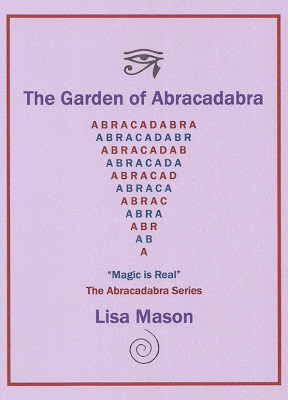
THE GARDEN OF ABRACADABRA, Volume 1 of the Abracadabra Series, Mason’s urban fantasy, is on Nook and on Kindle . A print edition is planned for late 2013. Also available in affordable installments as THE GARDEN OF ABRACADABRA TRILOGY on Kindle, Book 1: Life’s Journey , Book 2: In Dark Woods , and Book 3, The Right Road , and on Nook, Book 1: Life’s Journey , Book 2: In Dark Woods , and Book 3: The Right Road .At her mother’s urgent deathbed plea, Abby Teller enrolls at the Berkeley College of Magical Arts and Crafts to learn Real Magic. To support herself through school, she signs on as the superintendent of the Garden of Abracadabra, a mysterious, magical apartment building on campus. She discovers that her tenants are witches, shapeshifters, vampires, and wizards and each apartment is a fairyland or hell. On her first day in Berkeley, she stumbles upon a supernatural multiple murder scene. One of the victims is a man she picked up hitchhiking the day before. Compelled into a dangerous murder investigation and torn between three men, Abby will discover the first secrets of an ancient and ongoing war between good and evil, uncover mysteries of her own troubled past, and learn that the lessons of Real Magic may spell the difference between her own life or death.“So refreshing. . . .This is Stephanie Plum in the world of Harry Potter.”
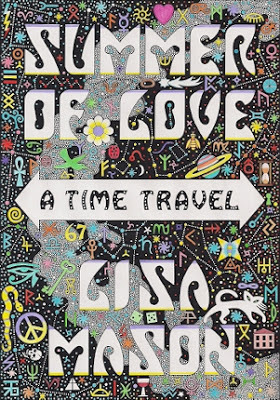
The Bantam classic is back! SUMMER OF LOVE, A TIME TRAVEL (a Philip K. Dick Award Finalist and San Francisco Chronicle Recommended Book) is on Nook and on Kindle.Nineteen five-star Amazon reviews
“Summer of Love is an important American literary contribution.”
“This book was so true to life that I felt like I was there. I recommend it to anyone.”
“More than a great science-fiction, a great novel as well.”The year is 1967 and something new is sweeping across America: good vibes, bad vibes, psychedelic music, psychedelic drugs, anti-war protests, racial tension, free love, bikers, dropouts, flower children. An age of innocence, a time of danger. The Summer of Love.San Francisco is the Summer of Love, where runaway flower children flock to join the hip elite and squares cruise the streets to view the human zoo.Lost in these strange and wondrous days, teenager Susan Bell, alias Starbright, has run away from the straight suburbs of Cleveland to find her troubled best friend. Her path will cross with Chiron Cat’s Eye in Draco, a strange and beautiful young man who has journeyed farther than she could ever imagine.With the help of Ruby A. Maverick, a feisty half-black, half-white hip merchant, Susan and Chi discover a love that spans five centuries. But can they save the world from demons threatening to destroy all space and time?New! Summer of Love Serials will be published for your affordable holiday reading in seven installments. Check the Official Blog for links as they roll in the door.
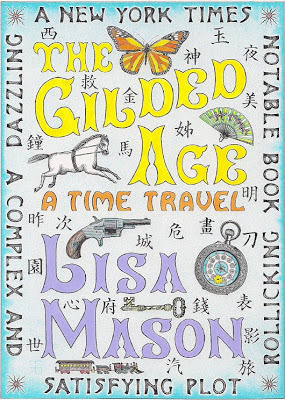
The Bantam sequel, THE GILDED AGE, A TIME TRAVEL (a New York Times Notable Book and New York Public Library Recommended Book) is on Nook and on Kindle .The year is 1895 and immigrants the world over are flocking to California on the transcontinental railroad and on transoceanic steamships. The Zoetrope demonstrates the persistence of vision, patent medicines addict children to morphine, and women are rallying for the vote. In San Francisco, saloons are the booming business, followed by brothels, and the Barbary Coast is a dangerous sink of iniquity. Atop Telegraph Hill bloody jousting tournaments are held and in Chinatown the tongs deal in opium, murder-for-hire, and slave girls.Zhu Wong, a prisoner in twenty-fifth century China, is given a choice--stand trial for murder or go on a risky time-travel project to the San Francisco of 1895 to rescue a slave girl and take her to safety. Charmed by the city’s opulent glamour, Zhu will discover the city’s darkest secrets. A fervent population control activist in a world of twelve billion people, she will become an indentured servant to the city’s most notorious madam. Fiercely disciplined, she will fall desperately in love with the troubled self-destructive heir to a fading fortune.And when the careful plans of the Gilded Age Project start unraveling, Zhu will discover that her choices not only affect the future but mean the difference between her own life or death.“A winning mixture of intelligence and passion.” The New York Times Book Review
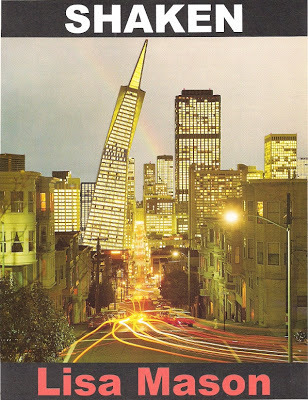
Mason’s thriller, SHAKEN, an ebook adaptation of “Deus Ex Machina” published in Asimov’s Science Fiction Magazine, republished in Transcendental Tales (Donning Press), and translated and republished in Europe and South America, is on Nook and on Kindle .Emma “J” for Joy Pearce is at her editorial offices on the twenty-second floor of Three Embarcadero in downtown San Francisco when the long-dreaded next Great Earthquake devastates the Bay area. Amid horrific destruction, she rescues a man trapped in the rubble. In the heat of survival, she swiftly bonds with him, causing her to question her possible marriage to her long-time boyfriend.But Jason Gibb is not the charming photojournalist he pretends to be. As Emma discovers his true identity, his mission in the city, and the dark secrets behind the catastrophe, she finds the choices she makes may mean the difference between her own life or death. A List of Sources follows this short novel.
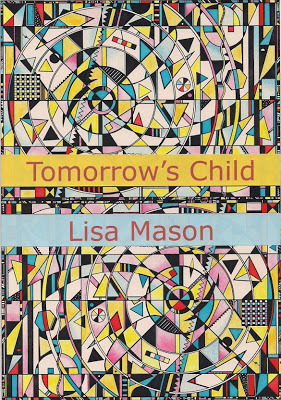
The Story That Sold To The Movies. TOMORROW’S CHILD began as a medical documentary, then got published in Omni Magazine, and finally sold to Universal Pictures, where the project is in development. On Nook and on Kindle.A high-powered executive is about to lose his estranged teenage daughter to critical burn wounds and only desperate measures may save her life.The ebook includes Lisa Mason’s blog, The Story Behind The Story That Sold To The Movies, describing the twists and turns this story took over the years.
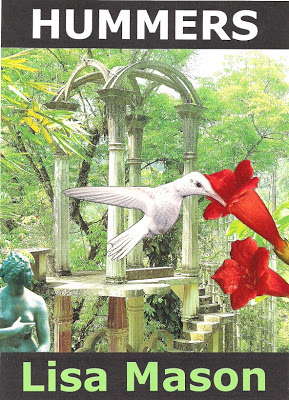
HUMMERS was published in Isaac Asimov’s Science Fiction Magazine, chosen for Year’s Best Fantasy and Horror 5th Annual Collection (St. Martin’s Press), and nominated for the Nebula Award.On Nook and on Kindle for 99 cents.Laurel, in the terminal stages of cancer, is obsessed with the Egyptian Book of the Dead. Jerry, her homecare nurse whose lover is dying of AIDS, gives her a surprising gift. A hummingbird feeder. As Laurel comes to grips with her own death, she learns powerful and redeeming lessons about Egyptian Magic from the hummingbirds that visit her.
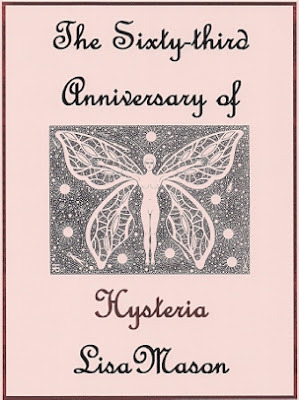
THE SIXTY-THIRD ANNIVERSARY OF HYSTERIA, published in the acclaimed anthology, Full Spectrum 5 (Bantam), which also included stories by Neal Stephenson, Karen Joy Fowler, and Jonathan Lethem, is on Nook and Kindle .The year is 1941, and Hitler’s armies have swept across Europe. Nora, a budding young Surrealist artist, has fled to Mexico with B.B., a much older and acclaimed Surrealist playwright down on his luck. Hundreds of European artists and writers have formed a colony in Mexico City, and Nora befriends Valencia, a fellow Surrealist artist and refugee. Together the friends explore Jungian psychology and the power of symbols in their Art. But Nora is plagued by an abusive relationship with B.B. She embarks on a harrowing journey deep into her own troubled psyche.The novelette was inspired by Mason’s favorite Surrealist artists, Leonora Carrington and Remedios Varo. An Afterword describing Carrington and Varo’s lives and a List of Sources are included in the ebook.
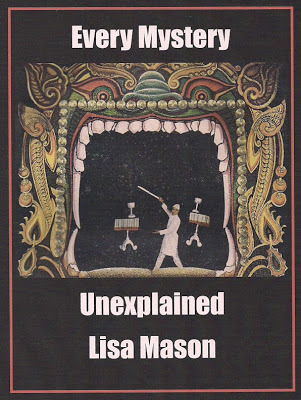
EVERY MYSTERY UNEXPLAINED, published in David Copperfield’s Tales of the Impossible (HarperPrism), an anthology that included stories by Ray Bradbury, Joyce Carol Oates, and Kevin J. Anderson, is on Nook and on Kindle .The year is 1895, and Danny Flint is a young man living in the shadow of his father, a famous stage magician whose fortunes are fading. Danny is grieving over his mother’s recent accidental death, for which he feels he is to blame. He learns to reconcile himself with his grief and guilt and to assume his place at center stage as a magician in his own right with the help of a mysterious beautiful lady.
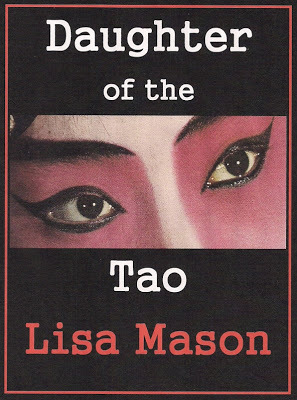
DAUGHTER OF THE TAO, published in Peter S. Beagle’s Immortal Unicorn (HarperPrism), that included stories by Charles de Lint, Karen Joy Fowler, Robert Sheckley, and Ellen Kushner, is on Nook and Kindle .Sing Lin is a mooie jai, a girl sold into slavery at the age of five to a wealthy merchant in Tangrenbu, the ghetto of her people in the new country across the sea. One lucky day, while she is out shopping by herself, she meets another mooie jai, Kwai Yin, a bossy, beautiful girl two years older. Kwai has a secret. Before she was sold into slavery, she had a Teacher who taught her about Tao Magic.But Sing watches Kwai succumb to the terrifying fate of all slave girls in Tangrenbu.Soon Sing is destined to go to the same fate. But will her invocation of Tao Magic save her?

For something fast and fun, U F uh-O, A SCI FI COMEDY, Lisa Mason’s script for a producer looking for the next “Galaxy Quest” or “Men in Black” that evolved into a novella, is on Nook and Kindle.Nikki and Josh really want a child but have infertility issues. Gretchen and Mike have the same problem. When Nikki meets Gretchen at the Happy Daze Family Clinic in Pasadena, they discover that they share a love of music and have asked for a donor with musical talent. Nine months later, they give birth to very unusual babies and, seeking an answer to why the kids are so special, they meet again at a pediatrician’s office. And the search is on: who—and what—is Donor Number 333?
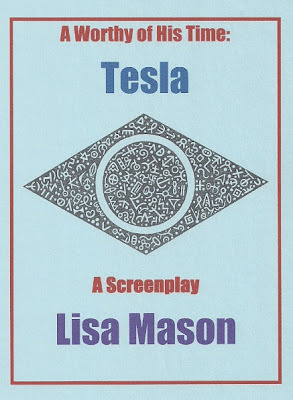
For something different, TESLA, A WORTHY OF HIS TIME, A SCREENPLAY, which was read by the producer of “Aliens” and “The Abyss” and is currently under consideration at another L.A. producer, is on Nook and Kindle . A List of Sources is included in the ebook.Genius. Visionary. Madman.Nikola Tesla (1856--1943) was the pioneering genius who invented the AC electrical system that powers our world to this day, as well as radio, remote control, the automobile speedometer, X-ray photography, the AND logic gate that drives all our computer systems, and countless other devices and precursors to devices such as cell phones, television, and the Internet that we so effortlessly use today.Strikingly handsome and charismatic, fluent in half a dozen languages, mathematics savant and master machinist, a reed-thin perfectionist who quoted poetry like a Victorian rapper, Tesla became one of the most famous men of his day. Friend of tycoons like John Jacob Astor and Stanford White and celebrities like Mark Twain and Sarah Bernhardt.Yet Tesla was an intensely driven and lonely man, beset by inner demons, and cursed with a protean inventive imagination a century ahead of his time. He died in obscurity and poverty and, to this day, his name is not widely known. How did that happen?Blending historical fact with speculative imagination, Lisa Mason explores the secrets of the Inventor’s inner life and his obsession with Goethe’s Faust set against the backdrop of sweeping technological changes at the turn of the twentieth century that have forever changed the world.
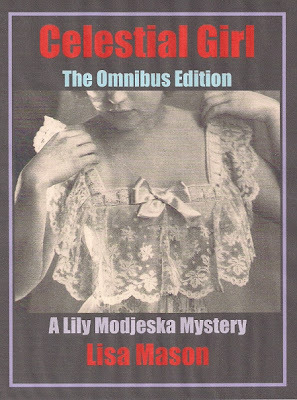
New! Lisa Mason’s romantic suspense, Celestial Girl, A Lily Modjeska Mystery, will be on Nook and Kindle for the year-end holidays and Strange Ladies: Stories, a collection of seven stories published in magazines and anthologies worldwide will be on Nook and Kindle in early 2013. Also forthcoming is The Quester Trilogy, an ebook adaptation of Lisa Mason’s early cyberpunk classics, Arachne and Cyberweb.For news about print books, ebooks, and more visit Lisa Mason’s Official Web Site and Lisa Mason’s Blog .If you like a work, please stop by Barnes and Noble or Amazon and “Like” it, add stars, write a review, and spread the word to your friends. Your response really matters.Thank you for your readership!
And thank you, Lisa, for sharing your books and extensive writing & publishing history and expertise. It's wonderful to see so many traditionally-published writers making their entire backlist available to be enjoyed by a new stable of readers.
Published on December 12, 2012 14:23
December 4, 2012
10 Questions with Writer Jen Barton (@FionaThornBook)

This Author Spotlight features writer Jen Barton, author of FIONA THORN AND THE CARAPACEM SPELL (see above).

Jen Barton was born in Williamsport, Pennsylvania in 1971 and spent much of her life on the East Coast. In 2008, at age 36, she and her family moved to California. With two cars, she and her husband moved two dogs, two guinea pigs, a cornsnake and their 10-year old daughter across the country. She counts the five day road trip, including a near escape by both dogs on Day 3, as one of her best experiences to date.
In 2009, with a Bachelor of Arts in English and Philosophy from Millersville University, Barton realized her childhood dream to become a writer. One van full of bored kids, one long day of travel, and Fiona Thorn was born. She’s been writing ever since.
When not taxiing her teenage daughter hither and yon, Barton loves reading (especially fantasy by George R. R. Martin), cooking (anything with pasta is a hit), and writing (magical worlds with obstinate teen girls is always a favorite).
1. How did you get into writing?
I’ve always loved to read, ever since I can remember, and from that came the desire to tell stories and try to write. I’ve written stories here and there over the years, and always had a vague idea that being a writer was a good fit. For a brief time I was a reporter for a very small paper, covering local events. But not until a few years ago, when a group of bored kids were killing time on a long car ride, did I settle in and begin. That day, after imagining weapons and powers, their dresses and horses, a group of four very special girls asked me to write them a princess story. And Fiona Thorn was born.
2. What do you like best (or least) about writing?
I love the beginning. The blank page has so much potential that it inspires me, it frees me in a way, if that makes sense. But what I love most is when my characters do things that I, as the writer, had no idea they were going to do. I still haven’t worked out how that happens, exactly, and it always feels like a bit of magic. Those are the best days.
Revising I could do without. Ugh.
3. What is your writing process? IE do you outline? Do you stick to a daily word or page count, write 7 days a week, etc?
Once the idea comes I like to sit with it for a while. I let it swirl around for a week, maybe more, just kind of stewing in my mind. I’ll dream about it if I’m really excited, but it always begins there. Then I usually do a vague outline, making sure I know what I want to accomplish with a particular chapter or scene. This helps me stay focused, because I can easily get off track. Many times I will know where the story is going to end also. But the middle is up to the characters. That’s the fun part. Seeing how they react to the situations I’ve decided to put them through always surprises me.
4. Who are some other writers you read and admire, regardless of whether they are commercially “successful?”
I am a fantasy nerd, I guess, which makes me a huge fan of George R. R. Martin. I literally lived A Song of Ice and Fire. I loved the nine book series by Robin Hobb, beginning with Assassin’s Apprentice. I grew up on Stephen King. I can’t tell you how many sleepless nights I owe to him. I am also a big fan of Barbara Kingsolver, especially The Poisonwood Bible. I’m deeply impressed and in awe of Elizabeth Strout’s work, Olive Kitteridge. But above all else, I love East of Eden by Steinbeck. It has everything, including Samuel Hamilton, the person I want to be when I grow up. :)
5. Should the question mark in the above question be inside or outside the quotes?
HAHAHAHA! The question mark belongs inside the quotes. I feel like I’ve dated myself somehow. I didn’t realize two spaces after a period had gone out of style either until I got more interested in formatting. So funny.
6. What’s your stance on the Oxford Comma?
Sounds like an elitist piece of punctuation that dresses very well; cute little bow-ties and carefully distressed jeans. Probably has fantastic parties, too.
7. What is your book Fiona Thorn and the Carapacem Spell about and how did it come to fruition?
When Fiona Thorn, an ornery orphan with an expertise in explosives, sets out to rescue her imprisoned friend, Jaydin Rowan, she wants nothing more than a few sleeping guards and a satchel full of Blast. What she gets is a run-in with three bickering princesses that puts all four girls on the wrong side of a locked dungeon door.
Now, accidentally involved in a plot to assassinate the King and accused of kidnapping the princesses, Fiona must find a way to free them all, save the King, and rescue Jaydin, all while struggling to pay the magical debt that’s slowly killing her. Unless, of course, the princesses’ annoying sibling rivalry kills her first.
Packed with powerful magic, fun-loving fairies and a vicious ogre turned pet, Fiona Thorn and the Carapacem Spell is a fantasy kids’ book sure to become a favorite in middle grade fiction.
Fiona came about after my daughter and some young friends asked me to write a princess story for them. Once I started, it took on a life of its own.
8. What’s your current writing project?
I’m working on a few things. I’m entered in a contest now called America’s Next Author. It’s a bit like American Idol for writers. We’re judged on social media exposure as well as our story quality, so I spend a fair amount of time tweeting and trying to scare up votes. My short story about a feisty old woman trapped in her dying body is called “Movin’ on Up” and can be found here, http://www.ebookmall.com/author/jen-barton if you’d like to check it out. Shameless, I know. But that’s the life of an indie author, I guess.
I’m also thinking about the outline for the second book in Fiona’s series, which right now is called Fiona Thorn and the Secret of the Ringing Trees.
And on top of that I’m working with an artist, developing a picture book around a poem I wrote called Purple Chocolate. It’s a bedtime story for young kids, designed in a Dr. Seuss style. I’m very excited about that. It’s looking so good.
9. What book(s) are you currently reading?
Dragonriders of Pern is on my bedside table. I guess I’m not much of a fantasy nerd if I haven’t read that yet. Running with the Demon by Terry Brooks is in my purse and is mostly what I reach for these days. And I have a new book on my phone that I can’t wait to share with my nephew. It’s called A Shadow Passed Over the Son. Very fast paced and fun!
10. Who or what inspires your writing?
I find inspiration in all kinds of places. Under the surface of everyday things is a world rich with material. Add a bit of imagination (my hands are making the rainbow motion just like Spongebob) and the base of the tree in your back yard becomes the house of a Fairy Queen who happens to be hiding a renegade from a distant kingdom...
Finally, is there anything you’d care to add? Please also include where people can read your published stories, buy your book, etc.
I’d love to say Thanks, Ryan for hosting me and asking fun questions! It was fantastic to share a little about what I do. Sometimes being a writer can be lonely, and it’s good to connect with someone other than your characters!
Fiona Thorn and the Carapacem Spell is available on Amazon in ebook and paperback, http://www.amazon.com/Fiona-Thorn-Carapacem-Spell-ebook/dp/B0095ZITN6.
And more information about my writing is available at the sites below:
Facebook: http://www.facebook.com/JenBartonWrites
Twitter: @FionaThornBook
website: http://fionathornbook.com/
Thank you, Jen, for sharing your work. Best of luck with America's Next Author. We'll certainly do all we can to help you.
Please chat with us again when Fiona Thorn and the Secret of the Ringing Trees is available!
Be sure to check out Fiona Thorn and the Carapacem Spell, visit Jen's website, follow her on Twitter, and vote for her on America's Next Author.
Published on December 04, 2012 07:40
November 27, 2012
10 Follow-up Questions with Bram Stoker Award-winning Horror Writer Benjamin Kane Ethridge (@bkethridge)
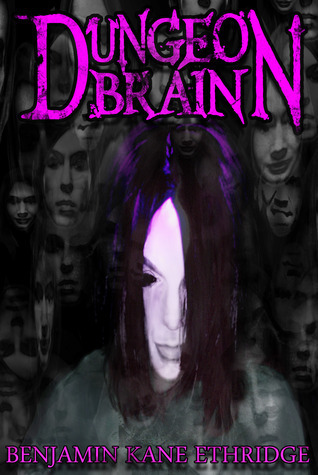
This Author Spotlight features the return of horror writer and Bram Stoker Award winner Benjamin Kane Ethridge, whose latest book DUNGEON BRAIN (Nightscape Press) is now available.
Benjamin is also the author of the novel BOTTLED ABYSS and BLACK & ORANGE (Bad Moon Books 2010), for which he won the coveted Bram Stoker Award.
For his master's thesis he wrote, "CAUSES OF UNEASE: The Rhetoric of Horror Fiction and Film." Available in an ivory tower near you. Benjamin lives in Southern California with his wife and two creatures who possess stunning resemblances to human children.
When he isn't writing, reading, or videogaming, Benjamin's defending California's waterways and sewers from pollution.
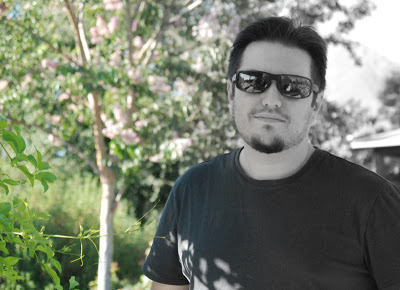
Welcome back!
1. This is a follow-up interview, but for people who are not already familiar with your work, tell us what kind of books you write and what readers should expect from your stories, and what is your latest novel DUNGEON BRAIN about?
I write horror, dark fantasy and science fiction stories. I won the Bram Stoker Award for my first novel BLACK & ORANGE and my second novel BOTTLED ABYSS has achieved some acclaim. My third novel DUNGEON BRAIN is starting to get into more people’s hands and I’m getting some great reviews. The story is dark science fiction, but for all those wary readers out there, I have to clarify that it isn’t Hard SciFi. The story revolves around a woman trapped in an abandoned hospital by a sadistic nurse. Within her mind, the woman has countless personalities stored, but she cannot recall her own personality. It turns out the nurse is drugging her, robbing her of her memory and a unique ability she has yet to realize. After struggling with set-backs, losing her memory again and again, the woman develops a plan to escape her hospital room and the nurse. What she finds out in the world, however, might be even worse…
2. What was the duration of the writing process for DUNGEON BRAIN?
I think I wrote it in about three months. Edited three months. Then I sent it to my beta reader and also to a professional editor, since I wanted to be sure it made sense—as there are some out-there concepts in the novel.
3. When DUNGEON BRAIN is adapted to film, and the producers ask for your dream cast, what will you say?
I really don’t know. I’m not up with the names of newer actors and actresses. I would choose acting ability over appearance though.
4. Stephen King often makes a cameo in films adapted from his work. Stan Lee is also enjoying doing so these days. What supporting role would you like to play in the film adaptation of DUNGEON BRAIN?
I would like to be one of the towering Rotviq aliens. It would have to be a really big rubber suit though. Maybe I can play a baby Rotviq.
5. For a writer, word of mouth is everything. What was the last book you read that you enjoyed so much that you wanted to share it with everyone you know?
There’s been many. NERVES by John Palisano springs to mind. It’s a great, trippy, well written story that should be experienced by everyone with literary taste for their horror.
6. As of this writing, the trend in publishing is toward series novels as opposed to stand-alone books. Is DUNGEON BRAIN part of a series? If so, where do you see the story going (ie how many books in the series)? If not, do you have a series you’ve written or plan to write, and if so, what is it? And if not, good for you. The squeaky wheel gets the grease!
I’m involved already in two series. My BLACK & ORANGE series will make up five books when it is completed. NIGHTMARE BALLAD, coming in February 2013, is the first of a trilogy. DUNGEON BRAIN was originally intended for one book. I’ve got an idea about how to do a second novel though. I’m not sure I’d want to do a third, but the idea I have for the second is pretty nuts, so I like it already. Ha!
7. Saul Bellow said “You never have to change anything you got up in the middle of the night to write.” Where do ideas for your books come from, and where are you and what are you typically doing when inspiration strikes?
I don’t look for inspiration anymore. I just jump into the lake and hope an eel bites me. Some days I swim for a long time with no results. Others, I’ve hardly adjusted to the water’s coldness and I’m being attacked from all sides. The ideas come to you. You can never go to them. That’s what I always try to keep in mind.
8. Brett Easton Ellis once said, “Do not write a novel for praise. Write for yourself; work out between you and your pen the things that intrigue you.” Indie publishing phenom Amanda Hocking has said that it messed with her head a bit when she realized so many people were going to read the books she’s now writing. Now that Benjamin Kane Ethridge is rapidly gaining recognition in the publishing world, has an established fan base anticipating his next novel, and is being talked about in the highly-reverent third person, will reader expectation influence how and/or what he writes? Or will he hold to Ellis’ suggestion?
Most writers write for readers, and their intention is to entertain or inform, in the best possible way, which would by most accounts derive praise. So I think the great Brett Ellis might be a little too taken with the concept of artistic self love. I adored everything I wrote in middle school and high school, but after cherishing a box of printer paper, I began wanting to share it. Now, if Ellis is talking about focusing on writing rather than focusing on being “good” then I agree with him. Your question brings me to a central conclusion though. You have to keep your readers happy, but you must also resolve to write the book you want to write—otherwise, it will be fake.
9. The world of Indie authors is the new slush pile. What are you going to say/do when a traditional New York publisher and/or agent contacts you and asks for a meeting?
Why did you take so long? hehe
10. Someone once said, and it may have been my dad, “If you fail to plan, you plan to fail.” Where do you want your writing career to be in five years’ time?
I want more visible mountain tops ahead of me. Striving for more keeps this business fresh. That’s why so many big names take on pseudonyms. They want that trek again. It’s gratifying. I’m still enjoying the battle toward the summit. I hope in five years to see many miles climbed, but also a healthy ascent before me.
Finally, because no artistic endeavor is a solo flight, would you care to share the names and contact info for your supporting players, namely your cover designer, editor, proofreader(s), research assistants, hairdresser, dog groomer, chauffer, maid, butler, etc?
Sure! And thanks for asking! Since we are talking DUNGEON BRAIN here, let me point to Nightscape Press. Editor and publishers Robert and Jennifer Wilson, and Mark Scioneaux. The cover artist and my good friend Gabriel Lopez. Anita Siraki for putting together a great blog tour, and I’d also like to give a shout out to RJ Cavender and Carl Alves for their first looks at the manuscript. Metallica, for supplying the music in my mind for the war scenes. Hairdresser— that would be me, the fine tooth comb and extra hold gel. Dog groomer—I have a short haired cat, and therefore grooming is unnecessary and possibly a deadly proposition. Chauffer—my wife, usually when I’ve drank too much. Maid—she wasn’t French so I sent her home. Butler—he didn’t look suspicious enough to me, so I sent him home as well.
Good stuff, Benjamin. Best of luck with DUNGEON BRAIN, and with the trek up the mountain. Let us know when your fame and fortune-based boredom spawn a pseudonym.
To read Benjamin's first Author Spotlight, click HERE.
Published on November 27, 2012 15:01
November 20, 2012
10 Questions with Paranormal Thriller Writer Scott A. Lerner (@scottlernerauth)
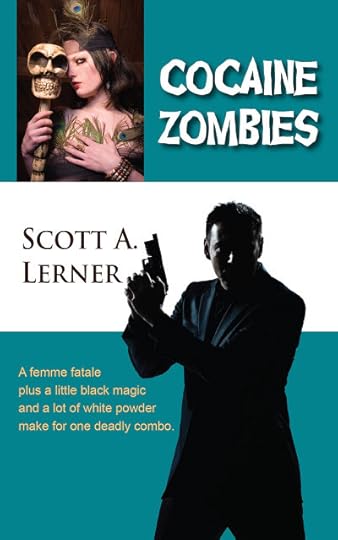
This Author Spotlight features debut-novelist Scott A. Lerner, author of COCAINE ZOMBIES.
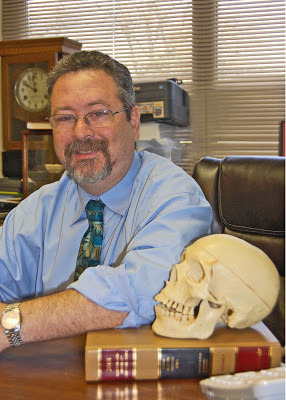
Author and attorney Scott A. Lerner resides in Champaign, Illinois. He obtained his undergraduate degree in psychology from the University of Wisconsin in Madison and went on to obtain his Juris Doctor degree from the University of Illinois in Urbana Champaign. He is currently a sole practitioner in Champaign, Illinois. The majority of his law practice focuses on the fields of Criminal law and Family Law.
Mr. Lerner lives with his wife, their two children, and their cat Fern. Lerner collects unusual antiques and enjoys gardening, traveling, reading fiction and going to the movies. Cocaine Zombies is his first published novel. Coming soon, the sequel: Ruler of Demons.
1. How did you get into writing?
I sit at my computer a lot for work. One day I thought it would be nice to write something that was not incredibly dull. That was the beginning.
2. What do you like best (or least) about writing?It is nice to take my mind off my workaday existence and think about the fantastic and unusual. I become someone else—someone more exciting and less limited.
3. What is your writing process? IE do you outline? Do you stick to a daily word or page count, write 7 days a week, etc.I have not developed a process yet. Someday, if I am incredibly lucky and able to quit my day job, maybe I will be able to keep a more consistent schedule. For now I write when I have time. If it feels as if I’m running dry, I wait until later and hope inspiration comes to me.
4. Who are some other writers you read and admire, regardless of whether they are commercially “successful?”Kurt Vonnegut and Stephen King, whose books are dark but have a lighter side. I also like what I have read so far of Mark Everett Stone and Molly MacRae, who were both kind enough to write blurbs for my book.
5. Should the question mark in the above question be inside or outside the quotes?I would have put it outside the quotes. Yet I was cursed with a cute girl in front of me during my grammar school English class. The result was not paying as much attention to the rules of punctuation. Actually, isn’t it okay “either way?” If the object of grammar is to make something readable … I get the meaning either way.
6. What’s your stance on the Oxford Comma?I refuse to stand on any punctuation. Just kidding, I’m against it. After Googling to see what it is and discovering I don’t use it I will come out publically and denounce it. It is un-American. Leave it to the British to add an extra comma.
7. What is Cocaine Zombies about and how did it come to fruition?It is about a small town lawyer who takes on a simple case related to the sale of cocaine. It soon becomes apparent that the case is a lot more complicated—involving a conspiracy to create and distribute a new form of synthetic cocaine … also Voodoo, black magic and a malevolent spirit. The main character, along with his good friend, must put their lives on the line to save humanity.
8. What’s your current writing project?Cocaine Zombies has a sequel in the works called Ruler of Demons. The initial draft is complete and is sure to appeal to fans of Cocaine Zombies. I am also working on an unrelated coming-of-age book. I think people will find it both interesting and incredibly twisted.
9. What book are you currently reading?Damned by Chuck Palahniuk.
10. Who or what inspires your writing?Is it too simplistic to say my imagination and observation? In life there is no shortage of odd and crazy things to be inspired by. For this story, history also fed my imagination. The antagonist wants to convince the hero that people are essentially evil. In human history there are many events to support her position; I had a lot of material to pick and choose from.
Finally, is there anything you’d care to add? Please also include where people can read your published stories, buy your book, etc.
Cocaine Zombies is my first novel. You can order it on Amazon, BN.com or wherever books are sold online and you can also request it at your local bookstore. It is also available in multiple eBook formats as well as the 5x8 trade paperback. You can also check out my blog for my random thoughts and like my author page on Facebook.
http://scottlerner.camelpress.com/
http://www.amazon.com/
http://camelpress.com/
http://twitter.com/scottlernerauth
Great, Scott. Congratulations on the publication of COCAINE ZOMBIES. Be sure to let us know when Ruler of Demons is ready.
Take a moment to visit Scott's blog and take a look inside Cocaine Zombies. And follow him on Twitter!
Published on November 20, 2012 13:56
November 14, 2012
10 Questions with SciFi Romance Novelist Donna McDonald (@scifiwoman13)
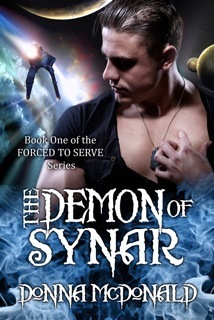
This Author Spotlight features Sci-Fi (and Fantasy) Romance novelist Donna McDonald.
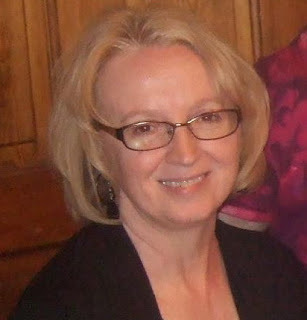
After 35 years of doing everything for a living except writing books, Donna McDonald finally published her first romance novel in March of 2011. Ten novels later, she is now living her own "happily ever after" life as a modestly successful author who gives back to the universe by doing her best to keep several Lexington, Kentucky coffee shops in business.
McDonald dreams of selling her house and taking to the open road once she figures out how to do so without her children and grandchildren finding out.
For the time being, she continues to live contentedly with her permanent fiancée of many years who helps her sneak away from real life as often as he can. She loves him dearly for it.
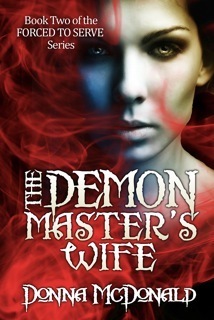
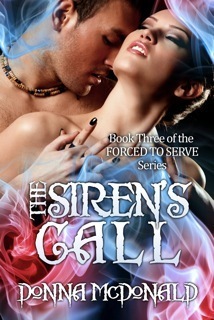
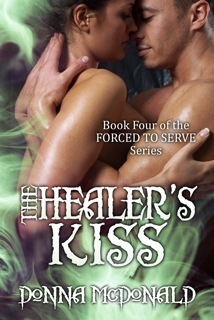
1. How did you get into writing?
I have always been a writer of one sort or another. In high school, I wrote poetry and plays. In college, I was a Creative Writing minor. I also worked as a Technical Writer for over 18 years. During the 90s, I wrote lots of partial romance novels, entered and placed in contests, and dreamed about one day getting published.
But if you are asking how I finally found my way to self-publishing 14 novels, in 2009 I got laid off and spent a traumatic year after that caring for a family member with cancer. When that was done, I was too exhausted mentally and spiritually to give any energy to a serious job search. As I had for most of my life, I turned to reading and writing for solace. Then one Monday in summer of 2010, instead of scanning more job ads, I sat down and decided to write a book instead. Two-and-a-half obsessive weeks later, I typed “THE END” on a 70,000-word manuscript. Once I knew I could finish at least one full novel, it became clear I could finish as many as I wanted.
Unfortunately, my romances with older characters were too “niche” in my genre for traditional publishers. I collected lots of soft rejections, but all of them were about not thinking they could sell my work. In late December of 2010, I found JA Konrath’s indie publishing blog and was inspired by his data to see if I could sell the books myself. I felt sure there had to be a romance-loving audience among the “Baby Boomer” population. So in March of 2011, I put the first two books in the Never Too Late series up. I offered one as “free”. The second I sold for $2.99.
How has it worked out? Well, I started writing full time in January 2012 and supporting myself with my earnings. My earnings are modest, not like those that hit the news or bestseller lists, but readers are consistently buying my work, and I’m paying my bills working as a writer. My deal with my readers is to keep writing for as long as my readers are willing to keep buying, a true win-win career move for me.
To this day, Dating A Cougar is still free and still brings me many new contemporary romance readers. Recently, I also made The Demon of Synar, the first book in my science fiction romance/space opera series, free. It’s too early to tell, but that seems to be working, too.
2. What do you like best (or least) about writing?
What I like best are the reader tweets, posts, messages, and emails I receive that say I kept them up reading or made them laugh.
What I like least is revising, but I do it out of loyalty to those reading me. I believe readers deserve the best book I can produce. The proofreader I recently hired is a nitpicker extraordinaire. She is seeing all my new work (as of two books ago), but I’m also currently sending her through the backlist.
3. What is your writing process? IE do you outline? Do you stick to a daily word or page count, write 7 days a week, etc?
I’m mostly a “pantzer” because I love writing without a guideline and being surprised by where the characters take me on our journey through the story. However, after finishing 14 books, I find that I sometimes get about two-thirds through the book and have to create a chapter outline to keep plot elements straight. This has happened for 5 out of 14 manuscripts. Some just flow out of me. Others require a different approach.
I do try to write 5-6 days a week, but it varies from book to book. Sometimes I take several days off to “think” through a stopping point or block, and then I come back to write like a mad fiend again. I am blessed to live in a household that supports this kind of crazy schedule. My children are all adults. My fiancée is supportive AND tolerant of my creative muse. I feel blessed.
4. Who are some other writers you read and admire, regardless of whether they are commercially “successful?”
I read eclectically. I own and still buy the books of celebrated traditional authors in my field. I love Nora Roberts writing as JD Robb which I would call romantic suspense, but it takes place in the future. Today, I think that work might even be “urban fantasy” because so much of the world she has built is futuristic, even the crimes.
For romantic comedy, I read Janet Evanovich (Stephanie Plum series) and Jennifer Crusie (“Bet Me” and her older work). I also like Dan Brown just in general. “Eat, Pray, Love” by Elizabeth Gilbert remains my current favorite NYT list novel in the past five years. If you saw my library, you’d wonder about my tastes.
I admit my list of traditional authors is probably reduced to 4 or 5 these days. For the price of 1 traditional book, I can often buy 3 indie books. As I became an indie myself, I started tripping over really good authors on my journey. Now I find myself hunting the indie lists for a magic combination of great storytelling and unique premise. This is especially true in science fiction romance, fantasy, or paranormal. The rogue element (which may just be pure passion) in indie books is often an exciting, original voice. When I find one I like, I get addicted and have to buy all their work. So in this, I understand and can better appreciate readers who say that to me about my books.
My “indie urges” have led me in science fiction and fantasy romances to read Melisse Aires (cyborg books), Linnea Sinclair (space opera), and the spicy Sylvia Day (specializes in alien sex). I also read HP Mallory (urban fantasy) and Amanda Hocking (YA). I was connected to Mallory and Hocking as a reader of their indie work long before they went traditional.
And now, as you know, I am looking for interesting male voices in science fiction and fantasy. Male authors tend to write exceptional fight scenes, action, and more fact-based novels. I find myself hungry for them. The work is sometimes so steeped in military strategies or socio-political debates that it is inaccessible to my relationship-oriented brain. So I have to sample a lot to find the right combinations.
5. Should the question mark in the above question be inside or outside the quotes?
I can only speak for my preference. I think the question mark goes outside the quotes if it punctuates the entire sentence. My reader brain says the whole sentence is the question. Yes, some think this breaks a standard grammar rule, but the mark on the outside of the quote more closely follows the original purpose of the quotation marks which is to offset and put special emphasis on the word “successful”. However, I follow the inside rule when writing dialog.
6. What’s your stance on the Oxford Comma?
I could reveal the color of my underwear easier than answer this question because these kinds of debates hurt my brain. I think readers don’t care as much as writers do—lol. I use the Oxford comma because my trained-by-six-years-of-an-English-degree brain says it is more right to treat everything in the same list equally. I’ve worked with a variety of editors who have their opinions, so not even all editors agree.
Did you ever read “Eats Shoots And Leaves”? I get the debate, but frankly I spot check my mechanical preferences with fiction writing trends in best-selling novels. Do you know how many ways there are to write ‘t-shirt’? Or correctly spell “blonde”? Did you know that no two editors can agree and that it depends on which dictionary they routinely use? They are just like writers. It is all interpretation.
Did you ever read an NYT list book and think the writing was badly edited or grammatically incorrect? Sure. Did your opinion of the editing keep it off the list? No. Making the list is about book sales and popularity of story. And I have never seen any industry award given for “Best Punctuated Book in Fiction”. I’m not saying good mechanics aren’t important. They are and I’m spending more and more each year trying to edit my books better.
However—it’s hard to worry about the Oxford comma when I’m still trying to figure out what’s so offensive to my author friends who keep critiquing YA’s first person POV. I was trained differently, sure—third person all the way—but that doesn’t mean I don’t think there is room in the English language for all kinds of creativity. What about ee cummings? What about Dr. Suess? I don’t want to judge. Let the editors debate. Let the readers judge. Readers won’t repeat-buy books that are too hard for them to grammatically read.
7. What is your book THE DEMON OF SYNAR about and how did it come to fruition?
Stories always start for me as characters acting out a scene in my head. THE DEMON OF SYNAR, Book 1 of the Forced To Serve series, actually began as a weird dream. After 9 novels, I wanted a break from the contemporary romances and had intended to write a dragon book. I love dragons and dragon books, but I had this dream of a spaceship crew and one of them was hosting a demon. Next thing I know, I have a huge complicated scene playing out in my head. So naturally, I wrote it down.
When I finally lifted my head from the laptop, I was already 80,000 words into the story and obsessive about finishing. It went over 130,000. I felt the book really needed to be two, so I broke the first 45,000 words out. It has all of the world building on the ship and introduction of the characters. It is a novella I call Book One. Books Two to Four are much more fast-paced and action-based, plus they have all exceeded 90,000 words.
Now I have no idea how long this series will go on. Frankly, I love writing fight scenes and planning rescue missions. I love bringing in new characters and getting rid of others as the series progresses. No, I’m not great at all of it yet, but I am good at some things. While I’m learning, I’m having a lot of fun writing a space opera with a demon in it. Who knew? Hopefully, I’ll get to the dragon book next year.
8. What’s your current writing project?
I am currently writing THE HEALER’S KISS which is Book 4 of the Forced To Serve series. After that, I’ll be heading back to one of the contemporary series for my final book this year. My contemporary readers are currently voting on my contemporary blog about which one should come next.
9. What book(s) are you currently reading?
Fantasy author John Marco’s short story “The Hundredth Kill” and his novel, “Starfinder: A Skylord’s novel”. I met John online because his work intrigued me. Later I also learned his wife read my contemporary books, which proves once again how small the world is. Until lately, I hadn’t read much of what is categorized as straight “fantasy” which I define for the purposes of my response as “the romance being optional in a story”. I know I’m not qualified to talk about any better definition of fantasy.
Your book “A Shadow Passed Over The Son” is coming up soon on my list because I want to recommend The Go-Kids series to my friend who is a mother of pre-teen and teen boys. When I can, I buy and read books before passing them along. She was specifically looking for YA for boys.
10. Who or what inspires your writing?
Literally everything inspires my writing. Anything can inspire a story. Readers who write to me inspire me to write the next book in a series even when I am not sure I can. I will admit that it is dangerous for strangers to talk to me. I really need one of those t-shirts that warn people.
Finally, is there anything you’d care to add? Please also include where people can read your published stories, buy your book, etc.
Ryan, I just want to add my thanks for interviewing me on your blog. I hope your readers take advantage of the free book offer to give my work a try. Happy writing to you. Happy reading to your blog fans!
THE DEMON OF SYNAR can be downloaded for free from Amazon, Barnes and Noble, Apple (via iTunes/iBooks), Kobo, Smashwords, and most ebook retailers.
Wonderful, Donna.
Your books look great, the cover art is outstanding. It won't be long before they're prominently displayed at the checkstand of every grocery store in America.
Be sure to visit Donna's website to view her other books. She is a prolific writer (one of the keys to success in the writing game) and has many other titles.
Published on November 14, 2012 13:01



